In Focus This Week
The Debrief
Inaugural conference allows local election officials to come together and share challenges and solutions
As part of its work to build a strong community of leaders in the U.S. Alliance for Election Excellence, the Center for Tech and Civic Life (CTCL) held an in-person conference in early February – The Debrief – where local election officials could come together, debrief about the common challenges they faced during the 2022 election, and share solutions.
The three-day conference included a series of bipartisan panel discussions on resilient and sustainable election funding, communications that can build public confidence in elections, and a panel discussion on the evolving landscape of safety, security and the trustworthiness of elections. Breakout sessions allowed participants to collaborate with each other and drill down even deeper on specific topics.
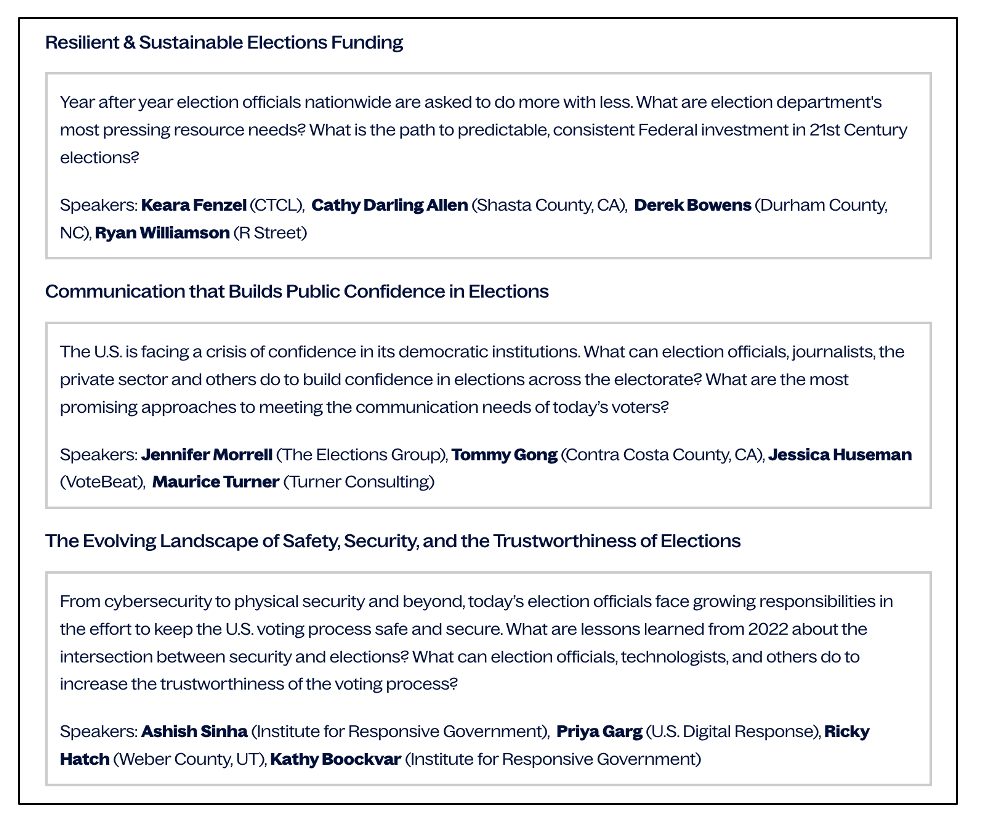
 “What I learned from this conference is that we need more opportunities for election officials to come together in community to share their common challenges and ideas with each other, especially as we chart a path forward through a trying time for democracy,” said Tiana Epps-Johnson, executive director of the Center for Tech and Civic Life. “I saw election officials learn from each other, make connections, celebrate their hard work, and leave with new energy. We need more of these kinds of moments for professional development in the field.”
“What I learned from this conference is that we need more opportunities for election officials to come together in community to share their common challenges and ideas with each other, especially as we chart a path forward through a trying time for democracy,” said Tiana Epps-Johnson, executive director of the Center for Tech and Civic Life. “I saw election officials learn from each other, make connections, celebrate their hard work, and leave with new energy. We need more of these kinds of moments for professional development in the field.”
The conference included a diverse group of local election officials from rural, suburban and urban communities across the country, representing as few as 3,000 voters to more than 1 million voters.
 Other events at the conference included a screening of the film “No Time to Fail,” a documentary that gives voice to the experiences of election workers during a critical time in our country’s relationship with election management. Director/Producer Margo Guernsey held a talkback after the screening to share what she learned from shadowing election workers in Rhode Island during the height of the pandemic.
Other events at the conference included a screening of the film “No Time to Fail,” a documentary that gives voice to the experiences of election workers during a critical time in our country’s relationship with election management. Director/Producer Margo Guernsey held a talkback after the screening to share what she learned from shadowing election workers in Rhode Island during the height of the pandemic.
Brianna Lennon, county clerk in Boone County, Missouri and Eric Fey, director of elections in St. Louis County, Missouri, broke some history with the first-ever live recording of their “High Turnout, Wide Margins” podcast in  front of an audience of election officials. Podcast guests included Michigan Secretary of State Jocelyn Benson, and Pam Anderson, the 2022 Republican nominee for Secretary of State in Colorado.
front of an audience of election officials. Podcast guests included Michigan Secretary of State Jocelyn Benson, and Pam Anderson, the 2022 Republican nominee for Secretary of State in Colorado.
The U.S. Alliance for Election Excellence is a nonpartisan collaborative that is bringing together election officials, designers, technologists, and other experts to envision, support, and celebrate excellence in U.S. election administration. The collaborative is led by the Center for Tech and Civic Life with its partners the Center for Civic Design, Center for Secure and Modern Elections, the Elections Group, Hasso Plattner Institute of Design (the d.school) at Stanford University, Prototyping Systems Lab, and U.S. Digital Response.
electionline Daily News Email
 What’s the best part of waking up? electionline Daily News in your inbox of course so be sure to sign up for your daily dose.
What’s the best part of waking up? electionline Daily News in your inbox of course so be sure to sign up for your daily dose.
Each morning you’ll receive the top headlines of the day, plus a listing of states featured in that day’s news round up.
To sign up, simply visit our site and provide us with your email and you’ll begin receiving the news in your inbox each morning.
We Google so you don’t have to!
Election News This Week
 Laissez Les Bon Temps Roluer: Neither hurricanes, nor earthquakes, nor the biggest party of the year will stop local election officials from pulling off an election. Parts of New Orleans will vote on Feb. 18 to fill a vacant House seat. Feb. 18 falls smack dab in the middle of this year’s Mardi Gras celebrations and that’s got local elections officials working extra time. Darren Lombard, a clerk of criminal court, told WDSU that his office has secured 24 sheriff’s deputies to staff polling locations near parade routes in an effort to help voters find parking. “(The polling locations) are not on the route, but they’re close and that causes major issues with parking,” Lombard said. “So we’re working around that with the help of the sheriff and we should be okay.” He also confirmed his office will have enough workers to staff each polling site and tabulate the results. “There is historical precedent for elections during the Carnival season and voters are reminded of the week long opportunity to early vote at numerous locations throughout New Orleans,” Lombard said.
Laissez Les Bon Temps Roluer: Neither hurricanes, nor earthquakes, nor the biggest party of the year will stop local election officials from pulling off an election. Parts of New Orleans will vote on Feb. 18 to fill a vacant House seat. Feb. 18 falls smack dab in the middle of this year’s Mardi Gras celebrations and that’s got local elections officials working extra time. Darren Lombard, a clerk of criminal court, told WDSU that his office has secured 24 sheriff’s deputies to staff polling locations near parade routes in an effort to help voters find parking. “(The polling locations) are not on the route, but they’re close and that causes major issues with parking,” Lombard said. “So we’re working around that with the help of the sheriff and we should be okay.” He also confirmed his office will have enough workers to staff each polling site and tabulate the results. “There is historical precedent for elections during the Carnival season and voters are reminded of the week long opportunity to early vote at numerous locations throughout New Orleans,” Lombard said.
 Georgia’s On My Mind: Georgia’s State Election Board is considering recommending to state lawmakers that the local election board inspection process be changed into a periodic review that will cover all 159 counties to develop best practices and shore up areas of weakness. According to Fulton review panelist Steven Day, a Gwinnett County election board member, the state election board, the secretary of state’s office, and the Georgia Association of Voter Registration Election Officials should consider a new periodic performance review that provides metrics about best ways to manage voting. This is preferable to waiting until a county has problems and trying to intervene in a potentially hostile situation, he said. “It is better to be a partner than an adversary, better to improve systems before dysfunction rather than trying to fix them after the fact,” Day said. He noted that any review process, however, needs more support from state lawmakers who control the budget of the Secretary of State’s office and the statewide board, and can determine which rules that local elections offices must follow. “The idea that you would expect a $500,000 consultancy from three guys volunteering your time is not is not reasonable,” he said. “They have got to act like it’s not the redheaded stepchild, but it’s something that should be valued,” Day said. “If you value elections then fully fund the staff there and give them the power they need to do the job.” William Duffey Jr., chairman of the State Election Board, said state and local election officials can collaborate on a new statewide review system, but resources are not sufficient to accomplish those goals. “We have to have the courage to say, ‘If you want uniformity and integrity in these processes, you have to give us the resources necessary to create a system by which we could regularize and make uniform the processes that you expect of all these 159 counties,’” Duffey said.
Georgia’s On My Mind: Georgia’s State Election Board is considering recommending to state lawmakers that the local election board inspection process be changed into a periodic review that will cover all 159 counties to develop best practices and shore up areas of weakness. According to Fulton review panelist Steven Day, a Gwinnett County election board member, the state election board, the secretary of state’s office, and the Georgia Association of Voter Registration Election Officials should consider a new periodic performance review that provides metrics about best ways to manage voting. This is preferable to waiting until a county has problems and trying to intervene in a potentially hostile situation, he said. “It is better to be a partner than an adversary, better to improve systems before dysfunction rather than trying to fix them after the fact,” Day said. He noted that any review process, however, needs more support from state lawmakers who control the budget of the Secretary of State’s office and the statewide board, and can determine which rules that local elections offices must follow. “The idea that you would expect a $500,000 consultancy from three guys volunteering your time is not is not reasonable,” he said. “They have got to act like it’s not the redheaded stepchild, but it’s something that should be valued,” Day said. “If you value elections then fully fund the staff there and give them the power they need to do the job.” William Duffey Jr., chairman of the State Election Board, said state and local election officials can collaborate on a new statewide review system, but resources are not sufficient to accomplish those goals. “We have to have the courage to say, ‘If you want uniformity and integrity in these processes, you have to give us the resources necessary to create a system by which we could regularize and make uniform the processes that you expect of all these 159 counties,’” Duffey said.
 Cost of Doing Business: Michigan Secretary of State Jocelyn Benson is seeking as much as $45 million in state funding to help local election administrators implement the reforms brought by Prop. 2 including drop boxes and nine days of early in-person voting. Lawmakers and clerks told Votebeat they are optimistic about the amounts Benson says she’ll request, but want more detailed breakdowns of the proposed budget. Harrison Township Clerk Adam Wit, who also is the president of the Michigan Association of Municipal Clerks, said his organization hopes to get guidance soon from the state. “That’s pretty much all we’ve been talking about,” said Wit. “What’s it going to look like in the [Upper Peninsula]? What’s it going to look like in metro Detroit? You gotta make sure you design a system that accommodates everybody.” Currently, it costs city, township, village, and county clerks $100 million annually to run elections, about $20,000 per precinct. It will run about $30 million to $45 million more to implement the new voting laws, Benson told lawmakers. State Rep. Ann Bollin, (R- Livingston County) and a member of the state House Appropriations Committee, said she wants a further breakdown of the money needed to pay for the changes mandated by Proposal 2 before she determines whether Benson’s request is enough to appropriately implement them, which she said should be the Legislature’s number one priority.
Cost of Doing Business: Michigan Secretary of State Jocelyn Benson is seeking as much as $45 million in state funding to help local election administrators implement the reforms brought by Prop. 2 including drop boxes and nine days of early in-person voting. Lawmakers and clerks told Votebeat they are optimistic about the amounts Benson says she’ll request, but want more detailed breakdowns of the proposed budget. Harrison Township Clerk Adam Wit, who also is the president of the Michigan Association of Municipal Clerks, said his organization hopes to get guidance soon from the state. “That’s pretty much all we’ve been talking about,” said Wit. “What’s it going to look like in the [Upper Peninsula]? What’s it going to look like in metro Detroit? You gotta make sure you design a system that accommodates everybody.” Currently, it costs city, township, village, and county clerks $100 million annually to run elections, about $20,000 per precinct. It will run about $30 million to $45 million more to implement the new voting laws, Benson told lawmakers. State Rep. Ann Bollin, (R- Livingston County) and a member of the state House Appropriations Committee, said she wants a further breakdown of the money needed to pay for the changes mandated by Proposal 2 before she determines whether Benson’s request is enough to appropriately implement them, which she said should be the Legislature’s number one priority.
 Media Matters: Recently, Chalkbeat — parent organization for Votebeat — released The Roadmap for Local News: An Emergent Approach to Meeting Civic Information Needs. The Roadmap is a vision for collaborative and effective solutions for local news and civic information. It calls for ambitious collective action and investment – from the field and philanthropy – in advancing a transformation to a new emergent system. The Roadmap represents nearly a year of design, input, and engagement from over 60 local news leaders and supporters from communities across the country. Additionally, this week, the launch of Civic News Company was announced. Civic News Company will serve as the parent company for Chalkbeat and Votebeat and possibly future beat. “Civic News Company’s mission is to help people understand how America works, so we can all make it work better. We do this by producing both Votebeat and Chalkbeat, world-class journalism for, and in partnership with, the communities who need it most. In the future, we may introduce new ‘beats’ covering additional topics that are critical to making this country work better for everyone who lives in it,” said Elizabeth Green, CEO and founder of Civic News Company. Green said the name Civic News Company was chosen because education and elections are pillars of civic life. “Civic also means local, and we believe that the American story is best told locally: in communities, with communities, and for communities,” Green said.
Media Matters: Recently, Chalkbeat — parent organization for Votebeat — released The Roadmap for Local News: An Emergent Approach to Meeting Civic Information Needs. The Roadmap is a vision for collaborative and effective solutions for local news and civic information. It calls for ambitious collective action and investment – from the field and philanthropy – in advancing a transformation to a new emergent system. The Roadmap represents nearly a year of design, input, and engagement from over 60 local news leaders and supporters from communities across the country. Additionally, this week, the launch of Civic News Company was announced. Civic News Company will serve as the parent company for Chalkbeat and Votebeat and possibly future beat. “Civic News Company’s mission is to help people understand how America works, so we can all make it work better. We do this by producing both Votebeat and Chalkbeat, world-class journalism for, and in partnership with, the communities who need it most. In the future, we may introduce new ‘beats’ covering additional topics that are critical to making this country work better for everyone who lives in it,” said Elizabeth Green, CEO and founder of Civic News Company. Green said the name Civic News Company was chosen because education and elections are pillars of civic life. “Civic also means local, and we believe that the American story is best told locally: in communities, with communities, and for communities,” Green said.
Personnel News: Orange County, Florida Supervisor of Elections Bill Cowles has announced he will not seek re-election. Jim Fruth has resigned from the Seneca County, Ohio Board of Elections. Moana Lutey has been appointed Maui County, Hawaii clerk. Former Alabama Secretary of State John Merrill has joined an engineering firm as its director of public policy. Oregon Secretary of State Shemia Fagan tore her ACL playing basketball, she will undergo surgery and be out of the office for at least a week. Ashley Gonzalez has been appointed the new city clerk for Belivdere Township, Michigan. Alecia M. Wells is the new chair of the St. Thomas, USVI board of elections. Karen Wheeler has resigned as the Monroe County, Indiana election supervisor. John O’Bannon is the new chairman of the Virginia state board of elections. Eryn Harvey has been hired as Luzerne County, Pennsylvania’s new election director.
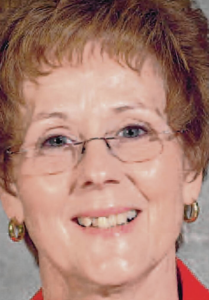 In Memoriam: Former Johnson County, Indiana Clerk Sue Anne “Susie” Misniec has died. She was 73. Misniec served in a variety of rolls in the county government including in the planning and zoning department and as the county recorder. Following her stint as recorder she ran for county clerk and served two terms until her retirement in 2018. As clerk, Misniec spearheaded the implementation of early voting in Johnson County. She also was instrumental in implementing a voter center plan for Johnson County before the 2012 presidential election — the first change to the county’s voting process in over 150 years. This was a campaign promise of hers. She told the Daily Journal in 2010 it would make elections more efficient and save taxpayers money. After the change was approved by the county’s election board, Misiniec was excited for the changes to be put in place. “I’m real excited about it, but I want it to be done right. The worst thing we can do is do this poorly and be disorganized and make voters disgruntled,” she told the Daily Journal in 2011. “She always had a smile on her face. She was strong, determined,” said Trena McLaughlin, current county clerk and a friend of Misiniec’s for over 20 years. “Whenever she set her mind to getting something accomplished, she did it.” McLaughlin said officials had a job to get done, but Misiniec made it fun with a smile. “We had a laugh every day, no matter what the day was,” she said. “No matter what issues we had, we always had a laugh and I’ll always remember that.”
In Memoriam: Former Johnson County, Indiana Clerk Sue Anne “Susie” Misniec has died. She was 73. Misniec served in a variety of rolls in the county government including in the planning and zoning department and as the county recorder. Following her stint as recorder she ran for county clerk and served two terms until her retirement in 2018. As clerk, Misniec spearheaded the implementation of early voting in Johnson County. She also was instrumental in implementing a voter center plan for Johnson County before the 2012 presidential election — the first change to the county’s voting process in over 150 years. This was a campaign promise of hers. She told the Daily Journal in 2010 it would make elections more efficient and save taxpayers money. After the change was approved by the county’s election board, Misiniec was excited for the changes to be put in place. “I’m real excited about it, but I want it to be done right. The worst thing we can do is do this poorly and be disorganized and make voters disgruntled,” she told the Daily Journal in 2011. “She always had a smile on her face. She was strong, determined,” said Trena McLaughlin, current county clerk and a friend of Misiniec’s for over 20 years. “Whenever she set her mind to getting something accomplished, she did it.” McLaughlin said officials had a job to get done, but Misiniec made it fun with a smile. “We had a laugh every day, no matter what the day was,” she said. “No matter what issues we had, we always had a laugh and I’ll always remember that.”
Legislative Updates
 Federal Legislation: Rep. Pat Fallon (R-Texas) has introduced the Voice of The Electorate (VOTE) Act. This legislation amends the National Voter Registration Act of 1993 by inserting a new section titled “Prohibiting Registration of Individuals Not Providing Proof of United States Citizenship.” The intent of the proposed legislation is that only U.S. citizens should participating in voting in U.S. elections. According to Fallon, Democrats are seeking to allow people who are not U.S. citizens to vote in U.S. elections. “In order to protect this sacred right, I have introduced The Voice of the Electorate (VOTE) Act, which takes the necessary steps to ensure that American citizens alone decide the future of our nation.”
Federal Legislation: Rep. Pat Fallon (R-Texas) has introduced the Voice of The Electorate (VOTE) Act. This legislation amends the National Voter Registration Act of 1993 by inserting a new section titled “Prohibiting Registration of Individuals Not Providing Proof of United States Citizenship.” The intent of the proposed legislation is that only U.S. citizens should participating in voting in U.S. elections. According to Fallon, Democrats are seeking to allow people who are not U.S. citizens to vote in U.S. elections. “In order to protect this sacred right, I have introduced The Voice of the Electorate (VOTE) Act, which takes the necessary steps to ensure that American citizens alone decide the future of our nation.”
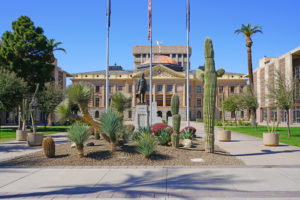 Arizona: SB 1471 is not a change to the election process but sort of a test: man vs. machine. It would require Maricopa County alone to select four voting precincts, select 100 ballots from each of those precincts and then recount every race on each of those ballots, by hand and by machine. Then the bill requires the county to compare the difference in the count and see which was more accurate. Maricopa County Recorder Stephen Richer supports the bill, even though this kind of test was not on the long list of election changes he suggested. Richer sees this as a put up or shut up moment for those that doubt the accuracy and reliability of vote counting machines, sometimes referred to as tabulators. Richer thinks the “man vs. machine” contest will prove a couple of things: that vote counting machines are highly accurate and free of bias, but also fast. Not only is the bill a test of accuracy, but it’s also written to gauge how long a hand count of ballots would take. The plan is to time how long it takes to hand count those 400 ballots and then do the math to figure out how long it would take to count all the ballots cast in the November 2022 election. The result — likely weeks, not days — would expose the folly of those who are demanding hand counts of ballots. Many of those same people also demand to have results on election night.
Arizona: SB 1471 is not a change to the election process but sort of a test: man vs. machine. It would require Maricopa County alone to select four voting precincts, select 100 ballots from each of those precincts and then recount every race on each of those ballots, by hand and by machine. Then the bill requires the county to compare the difference in the count and see which was more accurate. Maricopa County Recorder Stephen Richer supports the bill, even though this kind of test was not on the long list of election changes he suggested. Richer sees this as a put up or shut up moment for those that doubt the accuracy and reliability of vote counting machines, sometimes referred to as tabulators. Richer thinks the “man vs. machine” contest will prove a couple of things: that vote counting machines are highly accurate and free of bias, but also fast. Not only is the bill a test of accuracy, but it’s also written to gauge how long a hand count of ballots would take. The plan is to time how long it takes to hand count those 400 ballots and then do the math to figure out how long it would take to count all the ballots cast in the November 2022 election. The result — likely weeks, not days — would expose the folly of those who are demanding hand counts of ballots. Many of those same people also demand to have results on election night.
The Senate Elections Committee has passed a bill that would require early voters to present an ID when they drop off their ballots at a polling location. Those who cast a vote without providing ID could be charged with a felony. While Republican Sen. Jake Hoffman (Queen Creek) says it’s an incremental approach to accountability, Democrat Priya Sundareshan (Tucson) disagreed, saying it stems from conspiracy theories. “This one is the idea that there are mules dropping off ballots that are unattached from registered voters to mess with our elections,” Sundareshan said Other opponents say the bill is unnecessary, as signature verification is required to ensure early voters’ identity. The bill now goes to the Senate Rules Committee.
 Arkansas: Arkansas Senator Bryan King (R-Green Forrest) has proposed a new bill that would expand the time for early voting, and require employers to give paid time off to vote. The proposed bill would require employers to provide eight hours of paid leave to employees who are registered voters so that they can submit their vote during primary elections, primary runoff elections, and general elections. Under the bill, an employer would be unable to make an employee use their sick leave, vacation time, or hold any penalties against them for being absent because they went to vote. If an employer were to not comply with the bill then they could be subject to a fine of anywhere from $25 to $250. The bill states that early voting would be made available to any qualified voter who applies to a county clerk’s designated early voting location within the 30 days prior to a preferential primary or general election. This would be Monday through Friday between the hours of 8:00 a.m. to 6:00 p.m. during the first fifteen days of early voting and then 8:00 a.m. – 7:00 p.m. Monday through Friday for the other remaining days of early voting. Weekend hours would be 10:00 a.m. – 4:00 p.m. On the Monday before the election, hours would be 8:00 a.m. – 7:00 p.m. During any state or county holidays, early voting would not be available.
Arkansas: Arkansas Senator Bryan King (R-Green Forrest) has proposed a new bill that would expand the time for early voting, and require employers to give paid time off to vote. The proposed bill would require employers to provide eight hours of paid leave to employees who are registered voters so that they can submit their vote during primary elections, primary runoff elections, and general elections. Under the bill, an employer would be unable to make an employee use their sick leave, vacation time, or hold any penalties against them for being absent because they went to vote. If an employer were to not comply with the bill then they could be subject to a fine of anywhere from $25 to $250. The bill states that early voting would be made available to any qualified voter who applies to a county clerk’s designated early voting location within the 30 days prior to a preferential primary or general election. This would be Monday through Friday between the hours of 8:00 a.m. to 6:00 p.m. during the first fifteen days of early voting and then 8:00 a.m. – 7:00 p.m. Monday through Friday for the other remaining days of early voting. Weekend hours would be 10:00 a.m. – 4:00 p.m. On the Monday before the election, hours would be 8:00 a.m. – 7:00 p.m. During any state or county holidays, early voting would not be available.
 California: A new amendment was introduced to the California Assembly that could allow incarcerated individuals to vote from behind bars. According to SF Gate, the state Constitution currently prohibits the incarcerated from voting “until their sentence is complete.” “This measure would repeal that requirement regarding the disqualification of electors incarcerated for felony convictions, thereby authorizing an otherwise qualified elector serving a state or federal prison term for the conviction of a felony to vote,” the amendment details. If the bill passes through the legislature by a two-thirds vote, it will be presented to the citizens of California. If a “majority” of California residents vote to approve the bill, the incarcerated will also need to provide proof that they are a citizen of the state, and be 18 years or older. Assemblyman Isaac Bryan argued that allowing felons to vote from behind bars will allow them to connect with their community upon release.
California: A new amendment was introduced to the California Assembly that could allow incarcerated individuals to vote from behind bars. According to SF Gate, the state Constitution currently prohibits the incarcerated from voting “until their sentence is complete.” “This measure would repeal that requirement regarding the disqualification of electors incarcerated for felony convictions, thereby authorizing an otherwise qualified elector serving a state or federal prison term for the conviction of a felony to vote,” the amendment details. If the bill passes through the legislature by a two-thirds vote, it will be presented to the citizens of California. If a “majority” of California residents vote to approve the bill, the incarcerated will also need to provide proof that they are a citizen of the state, and be 18 years or older. Assemblyman Isaac Bryan argued that allowing felons to vote from behind bars will allow them to connect with their community upon release.
 Connecticut: A group of Connecticut lawmakers has proposed a bill that would “institute mandatory voting” for all Connecticut residents and fine those who do not comply. House bill 5704 would require all “qualified electors” either vote or provide a valid reason for not doing so. It would also require election officials to track down every person who did not cast a ballot to determine if they had a valid reason and fine those who did not. The bill says it’s designed to “incentivize civic engagement.”
Connecticut: A group of Connecticut lawmakers has proposed a bill that would “institute mandatory voting” for all Connecticut residents and fine those who do not comply. House bill 5704 would require all “qualified electors” either vote or provide a valid reason for not doing so. It would also require election officials to track down every person who did not cast a ballot to determine if they had a valid reason and fine those who did not. The bill says it’s designed to “incentivize civic engagement.”
 District of Columbia: A House committee advanced two disapproval resolutions seeking to repeal a pair of bills passed by the D.C. Council, sending the measures to the full House for a vote later this week. At the same time, the White House said that it opposes the two resolutions — but did not explicitly say it would veto them. Speaking during an hour-long debate in the House Rules Committee, Republicans said the bill to allow non-citizens to vote — which includes undocumented immigrants — would dilute the value of the right to vote and allow agents from foreign embassies to sow “chaos and disorder” by voting in local elections. “Voting is a core tenet of what it means to be a citizen of this great country. And this so-called voting rights law actually dilutes the rights of the American citizens and devalues what citizenship actually means,” said Rep. Nick Langworthy (R-New York). “The bottom line is allowing non-citizens here legally or illegally to vote in our domestic elections is a violation of our sovereignty and the sovereign rights of Americans.” On the voting bill, Democrats noted that non-citizens in various states had gained the right to vote at points throughout American history, and that currently some jurisdictions (including some towns in the Maryland suburbs) allow non-citizens to participate in local elections.
District of Columbia: A House committee advanced two disapproval resolutions seeking to repeal a pair of bills passed by the D.C. Council, sending the measures to the full House for a vote later this week. At the same time, the White House said that it opposes the two resolutions — but did not explicitly say it would veto them. Speaking during an hour-long debate in the House Rules Committee, Republicans said the bill to allow non-citizens to vote — which includes undocumented immigrants — would dilute the value of the right to vote and allow agents from foreign embassies to sow “chaos and disorder” by voting in local elections. “Voting is a core tenet of what it means to be a citizen of this great country. And this so-called voting rights law actually dilutes the rights of the American citizens and devalues what citizenship actually means,” said Rep. Nick Langworthy (R-New York). “The bottom line is allowing non-citizens here legally or illegally to vote in our domestic elections is a violation of our sovereignty and the sovereign rights of Americans.” On the voting bill, Democrats noted that non-citizens in various states had gained the right to vote at points throughout American history, and that currently some jurisdictions (including some towns in the Maryland suburbs) allow non-citizens to participate in local elections.
 Florida: Legislators are expected to pass House Bill 3B during February’s special legislative session. The bill would give more power to the statewide prosecutor in cases involving election cimes. According to the proposed legislation, “three cases have been dismissed on the grounds that OSP lacked jurisdiction to prosecute such cases because the act of making a false affirmation on a voter registration form and voting while ineligible occurred in a single county, not in multiple judicial circuits or connected with an organized criminal conspiracy affecting two or more judicial circuits.” In the three dismissed cases, “each court found that the act of transferring the voter registration information and voted ballot to another judicial circuit were ministerial activities performed by the government, not by one of the defendants, and the act of transferring such registration and ballot to another judicial circuit were not part of the criminal act with which the defendants were charged. Thus, there was neither a “related transaction” nor a criminal conspiracy, as required [by law].” The bill being looked at in the special session would give the statewide prosecutor the ability to act when election crimes are occurring, have occurred, or have been committed in two or more judicial circuits. The crimes are defined as “any attempt, solicitation, or conspiracy to commit any of the crimes specifically enumerated.” This includes running for state or federal office, petitioning for ballot initiatives, as well as voting on either item in an election. To prevent this option for dismissal, HB 3B amends state statutes to make it so the statewide prosecutor has “jurisdiction by deleting the current statutory requirement that such a crime be connected with an organized criminal conspiracy that affects two or more judicial circuits, and simply requires the crime to have affected two or more judicial circuits.” The Senate has approved its verion of the legislation SB4B 27-12 along party lines.
Florida: Legislators are expected to pass House Bill 3B during February’s special legislative session. The bill would give more power to the statewide prosecutor in cases involving election cimes. According to the proposed legislation, “three cases have been dismissed on the grounds that OSP lacked jurisdiction to prosecute such cases because the act of making a false affirmation on a voter registration form and voting while ineligible occurred in a single county, not in multiple judicial circuits or connected with an organized criminal conspiracy affecting two or more judicial circuits.” In the three dismissed cases, “each court found that the act of transferring the voter registration information and voted ballot to another judicial circuit were ministerial activities performed by the government, not by one of the defendants, and the act of transferring such registration and ballot to another judicial circuit were not part of the criminal act with which the defendants were charged. Thus, there was neither a “related transaction” nor a criminal conspiracy, as required [by law].” The bill being looked at in the special session would give the statewide prosecutor the ability to act when election crimes are occurring, have occurred, or have been committed in two or more judicial circuits. The crimes are defined as “any attempt, solicitation, or conspiracy to commit any of the crimes specifically enumerated.” This includes running for state or federal office, petitioning for ballot initiatives, as well as voting on either item in an election. To prevent this option for dismissal, HB 3B amends state statutes to make it so the statewide prosecutor has “jurisdiction by deleting the current statutory requirement that such a crime be connected with an organized criminal conspiracy that affects two or more judicial circuits, and simply requires the crime to have affected two or more judicial circuits.” The Senate has approved its verion of the legislation SB4B 27-12 along party lines.
 Georgia: A bill introduced in the House would allow cities to hold elections with ranked-choice voting, eliminating runoffs at the local level. The bipartisan proposal wouldn’t end runoffs in statewide elections in Georgia, the only state in the nation that requires runoffs after both primary and general elections in which no candidate wins a majority. “This is a starting point as a test if cities want to do it,” said state Rep. Joseph Gullett, a Republican from Dallas who introduced House Bill 200 on Wednesday. “If they’re successful at it, we’ll have an idea what this could look like in the state of Georgia. If it’s a terrible process, we’ll know that, too.” About 58% of Georgia voters supported eliminating runoffs after general elections, making the candidate who receives the most votes the winner, according to a poll last month by The Atlanta Journal-Constitution. Several cities have proposed ranked-choice voting for municipal elections, including Atlanta and Woodstock, Gullett said.
Georgia: A bill introduced in the House would allow cities to hold elections with ranked-choice voting, eliminating runoffs at the local level. The bipartisan proposal wouldn’t end runoffs in statewide elections in Georgia, the only state in the nation that requires runoffs after both primary and general elections in which no candidate wins a majority. “This is a starting point as a test if cities want to do it,” said state Rep. Joseph Gullett, a Republican from Dallas who introduced House Bill 200 on Wednesday. “If they’re successful at it, we’ll have an idea what this could look like in the state of Georgia. If it’s a terrible process, we’ll know that, too.” About 58% of Georgia voters supported eliminating runoffs after general elections, making the candidate who receives the most votes the winner, according to a poll last month by The Atlanta Journal-Constitution. Several cities have proposed ranked-choice voting for municipal elections, including Atlanta and Woodstock, Gullett said.
 Idaho: The Idaho House State Affairs Committee introduced a bill last week that would limit the number of people eligible for an absentee ballot. Rep. Joe Alfieri, R-Coeur d’Alene, pitched the bill, saying the recent popularity of absentee ballots is detrimental to the voting process and opens the door to fraud. He did not cite any examples of voter fraud in Idaho. “What it does it does is it cheapens the voting process and makes it the equivalent of nothing more than filling out a warranty card for the latest microwave or television that you bought,” Alfieri said in committee. “Additionally, the cleaning of voter rolls has become a real problem.” Should it pass, the only people eligible for an absentee ballot would be people in active service in the military, people with an illness, disability or hospitalization, an elector unable to be at the polls due to work or attending a university, or an elector out of the county on Election Day due to a religious mission. The bill does not offer an exemption for people on extended vacations. To apply for an absentee ballot, the elector would check a box regarding what qualifies them for the ballot. It is already a misdemeanor crime to provide false information to a government clerk, so individuals could be punished if they falsely apply for an absentee ballot. Early voting would still be allowed in Idaho counties, which generally is available 14 to 30 days before Election Day, depending on the county.
Idaho: The Idaho House State Affairs Committee introduced a bill last week that would limit the number of people eligible for an absentee ballot. Rep. Joe Alfieri, R-Coeur d’Alene, pitched the bill, saying the recent popularity of absentee ballots is detrimental to the voting process and opens the door to fraud. He did not cite any examples of voter fraud in Idaho. “What it does it does is it cheapens the voting process and makes it the equivalent of nothing more than filling out a warranty card for the latest microwave or television that you bought,” Alfieri said in committee. “Additionally, the cleaning of voter rolls has become a real problem.” Should it pass, the only people eligible for an absentee ballot would be people in active service in the military, people with an illness, disability or hospitalization, an elector unable to be at the polls due to work or attending a university, or an elector out of the county on Election Day due to a religious mission. The bill does not offer an exemption for people on extended vacations. To apply for an absentee ballot, the elector would check a box regarding what qualifies them for the ballot. It is already a misdemeanor crime to provide false information to a government clerk, so individuals could be punished if they falsely apply for an absentee ballot. Early voting would still be allowed in Idaho counties, which generally is available 14 to 30 days before Election Day, depending on the county.
 Indiana: House Bill 1427 would bring same-day registration to Indiana. The bill was introduced by Rep. Tonya Pfaff (District 43). The bill has had its first reading and has been referred to the committee on elections and apportionment.
Indiana: House Bill 1427 would bring same-day registration to Indiana. The bill was introduced by Rep. Tonya Pfaff (District 43). The bill has had its first reading and has been referred to the committee on elections and apportionment.
 Maine: Supporters and opponents of a voter ID law were back at the State House this week arguing over whether such a requirement would inspire more confidence in elections or undermine voter participation. Voter ID has become a partisan issue in Maine, which is one of just 13 states that do not require individuals to show some form of identification before entering the ballot box. And with Democrats controlling of both chambers of the Legislature, this latest push for a voter ID requirement in Maine faces an uphill climb. Pouliot’s bill would require the state to issue a photo ID for free to any eligible voter who does not have one. But his bill was staunchly opposed by Maine Secretary of State Shenna Bellows as well as the ACLU of Maine, Disability Rights Maine, the Maine Women’s Lobby, the Maine Transgender Network, Maine Conservation Voters and the League of Women Voters of Maine. “We should all be very proud that Maine ranks consistently at the very top of the list in voter participation in the nation,” Bellows said. “Proponents of this bill have argued that we are an outlier and urged us to adopt practices in other states. I would urge caution in adopting any measures that would create barriers to the right to vote and drag Maine’s voter participation and public confidence in elections down to the levels of apathy and voter participation that other states suffer . . . all voters should have the freedom to vote equally and any bills that infringes on that freedom should be regarded with the strictest scrutiny with regards to need and the public’s interest.” The committee will hold a work session on the bill on a future date.
Maine: Supporters and opponents of a voter ID law were back at the State House this week arguing over whether such a requirement would inspire more confidence in elections or undermine voter participation. Voter ID has become a partisan issue in Maine, which is one of just 13 states that do not require individuals to show some form of identification before entering the ballot box. And with Democrats controlling of both chambers of the Legislature, this latest push for a voter ID requirement in Maine faces an uphill climb. Pouliot’s bill would require the state to issue a photo ID for free to any eligible voter who does not have one. But his bill was staunchly opposed by Maine Secretary of State Shenna Bellows as well as the ACLU of Maine, Disability Rights Maine, the Maine Women’s Lobby, the Maine Transgender Network, Maine Conservation Voters and the League of Women Voters of Maine. “We should all be very proud that Maine ranks consistently at the very top of the list in voter participation in the nation,” Bellows said. “Proponents of this bill have argued that we are an outlier and urged us to adopt practices in other states. I would urge caution in adopting any measures that would create barriers to the right to vote and drag Maine’s voter participation and public confidence in elections down to the levels of apathy and voter participation that other states suffer . . . all voters should have the freedom to vote equally and any bills that infringes on that freedom should be regarded with the strictest scrutiny with regards to need and the public’s interest.” The committee will hold a work session on the bill on a future date.
 Minnesota: The Minnesota House passed a bill to restore voting rights to people still on parole or probation. The bill heads to the state Senate for a vote. More than 50,000 Minnesotans would be able to vote if the bill (HF28) is signed into law. Current Minnesota law allows formerly incarcerated people to vote after finishing every part of their sentence, including probation, parole or any form of supervised release. Minnesota has one of the lowest incarceration rates in the country but some of the longest probationary periods of any state. Republicans attempted to pass an amendment that would prevent people on parole or probation for murder or sex crime convictions from voting, calling themselves victim’s rights advocates. Chief author Rep. Frazier said restricting “one-off” situations was not in the spirit of the bill. Several victims’ rights groups — including the Minnesota Coalition Against Sexual Assault — are in support of restoring the right to vote for anyone on probation or parole. The bill passed 71-59.
Minnesota: The Minnesota House passed a bill to restore voting rights to people still on parole or probation. The bill heads to the state Senate for a vote. More than 50,000 Minnesotans would be able to vote if the bill (HF28) is signed into law. Current Minnesota law allows formerly incarcerated people to vote after finishing every part of their sentence, including probation, parole or any form of supervised release. Minnesota has one of the lowest incarceration rates in the country but some of the longest probationary periods of any state. Republicans attempted to pass an amendment that would prevent people on parole or probation for murder or sex crime convictions from voting, calling themselves victim’s rights advocates. Chief author Rep. Frazier said restricting “one-off” situations was not in the spirit of the bill. Several victims’ rights groups — including the Minnesota Coalition Against Sexual Assault — are in support of restoring the right to vote for anyone on probation or parole. The bill passed 71-59.
Employers in Minnesota are currently required to allow their workers paid time off to vote on Election Day. But a bill authored by state Sen. Bobby Joe Champion would extend those protections for eligible voters who want to cast an in-person absentee ballot. “Every employee who is eligible to vote in an election has the right to be absent from work for the time necessary to appear at the employee’s polling place, cast a ballot, and return to work,” the bill states. “An employer or other person may not directly or indirectly refuse, abridge, or interfere with this right or any other election right of an employee.” The bill was introduced on Jan. 23 and was referred to the Senate Elections Committee. It has not yet been scheduled for a hearing.
Legislators are considering a bill that would allow 16-year-olds to pre-register and would update voter registration for U.S. citizens when they get a new Minnesota driver’s license or complete other government forms with a new name or address. People could opt out of the automatic registration. The House Elections Finance and Policy Committee approved the bill on an 8-5 party-line vote Wednesday. A companion bill made it through the Senate elections committee earlier this week, also with Democrats in favor and Republicans opposed. Debate over both bills also encompassed proposed changes to campaign finance disclosure by outside groups. Secretary of State Steve Simon, a DFLer, told the committee the slate of proposed changes would reduce registrations at polling places, although that same-day registration option would remain.
 Mississippi: Rep. Tommy Reynolds (D- Water Valley), successfully amended Republican-backed legislation designed to purge voter rolls to restore suffrage to military veterans who had lost their right to vote because of felony convictions. Reynolds has in previous years filed bills to restore the right to vote to veterans who had been convicted of felonies. Those bills were never considered in committee. But before the full House on Wednesday, Reynolds was successful in amending a bill he and other House Democrats would normally oppose to restore voting rights to members of the military. After Reynolds’ amendment, House Bill 1310 passed on an 86-31 vote. The bill needed a two-thirds (or at least 78 yeas) vote to pass under guidelines of the Mississippi Constitution. The constitution requires a two-thirds vote of both the House and Senate to restore voting rights to those convicted of felonies. The bill now goes to the Senate unless the House Republican leadership attempts to call the bill back up to try to remove the Reynolds amendment.
Mississippi: Rep. Tommy Reynolds (D- Water Valley), successfully amended Republican-backed legislation designed to purge voter rolls to restore suffrage to military veterans who had lost their right to vote because of felony convictions. Reynolds has in previous years filed bills to restore the right to vote to veterans who had been convicted of felonies. Those bills were never considered in committee. But before the full House on Wednesday, Reynolds was successful in amending a bill he and other House Democrats would normally oppose to restore voting rights to members of the military. After Reynolds’ amendment, House Bill 1310 passed on an 86-31 vote. The bill needed a two-thirds (or at least 78 yeas) vote to pass under guidelines of the Mississippi Constitution. The constitution requires a two-thirds vote of both the House and Senate to restore voting rights to those convicted of felonies. The bill now goes to the Senate unless the House Republican leadership attempts to call the bill back up to try to remove the Reynolds amendment.
 Missouri: The House approved making it harder to amend the state’s constitution. Currently, a proposed amendment to the constitution by the initiative ballot petition process requires a simple majority to pass. Under the resolution proposed by Rep. Mike Henderson, R-Bonne Terre, that threshold would increase to 60%. “I believe that the Missouri Constitution is a living document, but not an ever-expanding document. And right now it has become an ever expanding document with over 60 additions since 1945,” Henderson said. If the resolution is also passed by the Senate, it would go on the ballot and must be approved by voters by a simple majority to go into effect. House members discussed the resolution for hours on the floor before giving it first round approval along party lines 106-50. On Thursday the House gave it final approval with little debate, voting 108-50 to send it to the Senate. The legislation does not address signature requirements, which is another avenue that Republicans are considering in order to change the process. The legislation would apply to constitutional amendments brought both by the initiative petition process and those from the legislature.
Missouri: The House approved making it harder to amend the state’s constitution. Currently, a proposed amendment to the constitution by the initiative ballot petition process requires a simple majority to pass. Under the resolution proposed by Rep. Mike Henderson, R-Bonne Terre, that threshold would increase to 60%. “I believe that the Missouri Constitution is a living document, but not an ever-expanding document. And right now it has become an ever expanding document with over 60 additions since 1945,” Henderson said. If the resolution is also passed by the Senate, it would go on the ballot and must be approved by voters by a simple majority to go into effect. House members discussed the resolution for hours on the floor before giving it first round approval along party lines 106-50. On Thursday the House gave it final approval with little debate, voting 108-50 to send it to the Senate. The legislation does not address signature requirements, which is another avenue that Republicans are considering in order to change the process. The legislation would apply to constitutional amendments brought both by the initiative petition process and those from the legislature.
 Montana: A bill heard in committee would require voters to more frequently opt in to absentee voter list, which critics say would add a new hurdle for many voters to participate in elections. House Bill 335, sponsored by Rep. David Bedey, R-Hamilton, proposes sending notices to absentee voters every four years, which they must fill out and return in order to keep receiving absentee ballots. If they don’t return it in 60 days, they would be removed from the absentee list and sent a follow-up notice telling them so. Bedey said his bill would ensure that absentee voter lists would be maintained more frequently. It would also prohibit inactive voters from being sent absentee ballots. Besides Bedey, no one else testified in support of his bill. It was opposed by the Montana Association of Clerk and Recorders, the Montana Federation of Public Employees and the Montana AFL-CIO. Eric Bryson, a lobbyist for the clerks and recorders, said election officials objected to the bill in part due to the added cost it would place on counties and their taxpayers. The bill’s fiscal note estimates the cost of mailing those notices out would cost between $570,000 and $1.1 million, depending on how many follow-up notices need to be mailed out.
Montana: A bill heard in committee would require voters to more frequently opt in to absentee voter list, which critics say would add a new hurdle for many voters to participate in elections. House Bill 335, sponsored by Rep. David Bedey, R-Hamilton, proposes sending notices to absentee voters every four years, which they must fill out and return in order to keep receiving absentee ballots. If they don’t return it in 60 days, they would be removed from the absentee list and sent a follow-up notice telling them so. Bedey said his bill would ensure that absentee voter lists would be maintained more frequently. It would also prohibit inactive voters from being sent absentee ballots. Besides Bedey, no one else testified in support of his bill. It was opposed by the Montana Association of Clerk and Recorders, the Montana Federation of Public Employees and the Montana AFL-CIO. Eric Bryson, a lobbyist for the clerks and recorders, said election officials objected to the bill in part due to the added cost it would place on counties and their taxpayers. The bill’s fiscal note estimates the cost of mailing those notices out would cost between $570,000 and $1.1 million, depending on how many follow-up notices need to be mailed out.
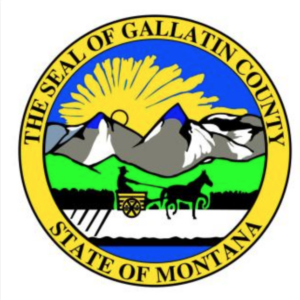 Gallatin County, Montana: The Gallatin County Commission approved the disposal of 2020 General Election records, despite protests against the move during the commission’s meeting. Election materials, like voted ballots, unvoted ballots, unused ballots and other records gathered during an election are allowed to be disposed of under state law. Eric Semerad, Gallatin County clerk and recorder, said during the meeting that the standard retention period for a presidential election is 22 months, which expired in September. Gallatin County Commissioner Zach Brown said that the commission had no legal basis to deny the request. He added that he viewed Semerad’s request as a routine government function outlined in state law. About a half dozen people urged the commission to deny Semerad’s request, with many saying that citizen-led investigations into alleged voter fraud were still ongoing and the records were needed in those investigations. The election materials approved for disposal by the county commission are meant to stay sealed, unless for an audit or court order, according to state law. Semerad said that the one year period to file a lawsuit to contest the election had also passed. “There’s really no way to access these records legally,” Semerad said. “To be able to be accessed they would have to be unsealed by a district court judge and the path has already been passed for that.”
Gallatin County, Montana: The Gallatin County Commission approved the disposal of 2020 General Election records, despite protests against the move during the commission’s meeting. Election materials, like voted ballots, unvoted ballots, unused ballots and other records gathered during an election are allowed to be disposed of under state law. Eric Semerad, Gallatin County clerk and recorder, said during the meeting that the standard retention period for a presidential election is 22 months, which expired in September. Gallatin County Commissioner Zach Brown said that the commission had no legal basis to deny the request. He added that he viewed Semerad’s request as a routine government function outlined in state law. About a half dozen people urged the commission to deny Semerad’s request, with many saying that citizen-led investigations into alleged voter fraud were still ongoing and the records were needed in those investigations. The election materials approved for disposal by the county commission are meant to stay sealed, unless for an audit or court order, according to state law. Semerad said that the one year period to file a lawsuit to contest the election had also passed. “There’s really no way to access these records legally,” Semerad said. “To be able to be accessed they would have to be unsealed by a district court judge and the path has already been passed for that.”
 Nevada: Republicans have officially filed legislation to try again to require identification when voting in person and provide additional steps when voting by mail. Republican Assem. Gregory Hafen II, of Pahrump, introduced the legislation. Republican Gov. Joe Lombardo said in his State of the State Address last month that he would support such a measure. “Signature verification is a time-intensive and cumbersome process,” the governor said in his Jan. 23 speech. “We require people to have a valid form of identification to get on a plane, to operate a motor vehicle or to purchase alcohol or cigarettes, but not to cast a vote in an election. That is illogical.” The bill would require a Nevada voter to show a form of proof of identity when voting, including a driver’s license or other federally acceptable identification documents. Voters who do not have driver’s licenses would be able to obtain an identification card from the Department of Motor Vehicles free of charge. Voters who vote by mail would have to either put the last four digits of their Social Security Number or driver’s license number on their ballot, along with their signature, the bill proposes.
Nevada: Republicans have officially filed legislation to try again to require identification when voting in person and provide additional steps when voting by mail. Republican Assem. Gregory Hafen II, of Pahrump, introduced the legislation. Republican Gov. Joe Lombardo said in his State of the State Address last month that he would support such a measure. “Signature verification is a time-intensive and cumbersome process,” the governor said in his Jan. 23 speech. “We require people to have a valid form of identification to get on a plane, to operate a motor vehicle or to purchase alcohol or cigarettes, but not to cast a vote in an election. That is illogical.” The bill would require a Nevada voter to show a form of proof of identity when voting, including a driver’s license or other federally acceptable identification documents. Voters who do not have driver’s licenses would be able to obtain an identification card from the Department of Motor Vehicles free of charge. Voters who vote by mail would have to either put the last four digits of their Social Security Number or driver’s license number on their ballot, along with their signature, the bill proposes.
 New Hampshire: Senate Bill 157 would require the office to audit at least two AccuVote machines on Election Day during state primaries and up to eight machines during the general election. The audits would need to be conducted at specific towns and city wards across the state, selected at random, the bill states. They would be carried out in public by people appointed and trained by the secretary of state. For each machine, at least 5 percent of the ballots scanned must be examined, the bill adds. The choices on the ballots must be compared to the results recorded in the machines, and any differences must be documented. Sen. James Gray, a Rochester Republican and the bill’s prime sponsor, said the bill was an important extension of the mandatory audits last year. The issue has garnered bipartisan support; 82 percent of Granite Staters polled by the New Hampshire Campaign for Voting Rights said they support post-election auditing in some form, testified McKenzie St. Germain, the group’s campaign director.
New Hampshire: Senate Bill 157 would require the office to audit at least two AccuVote machines on Election Day during state primaries and up to eight machines during the general election. The audits would need to be conducted at specific towns and city wards across the state, selected at random, the bill states. They would be carried out in public by people appointed and trained by the secretary of state. For each machine, at least 5 percent of the ballots scanned must be examined, the bill adds. The choices on the ballots must be compared to the results recorded in the machines, and any differences must be documented. Sen. James Gray, a Rochester Republican and the bill’s prime sponsor, said the bill was an important extension of the mandatory audits last year. The issue has garnered bipartisan support; 82 percent of Granite Staters polled by the New Hampshire Campaign for Voting Rights said they support post-election auditing in some form, testified McKenzie St. Germain, the group’s campaign director.
 New Jersey: A set of election reform bills were unanimously approved by the State Government, Wagering, Tourism and Historic Preservation Committee, potentially clearing the way for universal prepaid postage on mail-in ballots and other changes to the state’s elections administration. The two most notable bills both regarded postage on mail-in ballots: one to require mail-in ballot applications to come with prepaid postage, and another to do the same for the ballot envelopes themselves. Some counties have already implemented prepaid postage for their elections, but the policy is not uniform across the state. “Fundamentally, there should be no cost associated with casting a ballot, whether a voter chooses to vote in-person or by mail,” Philip Hensley of the League of Women Voters said in support of the bills. “Any financial barrier to voting violates that basic fundamental principle.” Both bills previously cleared an Assembly committee last month, also unanimously, so they should be set to pass the full legislature sometime soon. The Senate committee also cleared two other bills regarding elections; one would require counties to provide mail-in ballot applications for future elections at polling places on Election Day, while the other moves various election deadlines to smooth out some issues caused by previous legislation. A third bill to standardize emergency and provisional ballots was held for now.
New Jersey: A set of election reform bills were unanimously approved by the State Government, Wagering, Tourism and Historic Preservation Committee, potentially clearing the way for universal prepaid postage on mail-in ballots and other changes to the state’s elections administration. The two most notable bills both regarded postage on mail-in ballots: one to require mail-in ballot applications to come with prepaid postage, and another to do the same for the ballot envelopes themselves. Some counties have already implemented prepaid postage for their elections, but the policy is not uniform across the state. “Fundamentally, there should be no cost associated with casting a ballot, whether a voter chooses to vote in-person or by mail,” Philip Hensley of the League of Women Voters said in support of the bills. “Any financial barrier to voting violates that basic fundamental principle.” Both bills previously cleared an Assembly committee last month, also unanimously, so they should be set to pass the full legislature sometime soon. The Senate committee also cleared two other bills regarding elections; one would require counties to provide mail-in ballot applications for future elections at polling places on Election Day, while the other moves various election deadlines to smooth out some issues caused by previous legislation. A third bill to standardize emergency and provisional ballots was held for now.
 New Mexico: Students would get Election Day off and motor-vehicle offices would expand automatic voter registration under a bill moving forward in the state House and backed by the chamber’s Democratic leadership. The legislation, House Bill 4, cleared its first House committee on a party-line vote over the objection of Republicans who questioned the propriety of registering people automatically and asking later if they’d like to opt out. Secretary of State Maggie Toulouse Oliver, a Democrat who served as an expert witness on the bill, said the proposal includes safeguards to ensure only qualified electors are registered automatically. The Motor Vehicle Division is linked to an electronic database with citizenship information, for example, and the legislation will strengthen the accuracy of the voter rolls by also updating addresses during MVD transactions, Toulouse Oliver said. Newly registered voters will be told they’ve been added to the voter rolls and that they’ll get a postcard in the mail allowing them to decline the registration. The automated procedures would go into effect in mid-2025. The state Taxation and Revenue Department estimated it would cost about $718,000 to carry out the automated registration. In addition to automatic registration, the bill includes a Native American Voting Rights Act intended to protect access to the polls in tribal areas, the restoration of voting rights for felons when they exit incarceration and a permanent absentee voter list. The proposal also would make Election Day a school holiday for general and regular local elections. Many schools serve as polling sites. The bill passed the House Government, Elections and Indian Affairs Committee on a 6-3 vote. Approval from a second committee would send it to the House floor.
New Mexico: Students would get Election Day off and motor-vehicle offices would expand automatic voter registration under a bill moving forward in the state House and backed by the chamber’s Democratic leadership. The legislation, House Bill 4, cleared its first House committee on a party-line vote over the objection of Republicans who questioned the propriety of registering people automatically and asking later if they’d like to opt out. Secretary of State Maggie Toulouse Oliver, a Democrat who served as an expert witness on the bill, said the proposal includes safeguards to ensure only qualified electors are registered automatically. The Motor Vehicle Division is linked to an electronic database with citizenship information, for example, and the legislation will strengthen the accuracy of the voter rolls by also updating addresses during MVD transactions, Toulouse Oliver said. Newly registered voters will be told they’ve been added to the voter rolls and that they’ll get a postcard in the mail allowing them to decline the registration. The automated procedures would go into effect in mid-2025. The state Taxation and Revenue Department estimated it would cost about $718,000 to carry out the automated registration. In addition to automatic registration, the bill includes a Native American Voting Rights Act intended to protect access to the polls in tribal areas, the restoration of voting rights for felons when they exit incarceration and a permanent absentee voter list. The proposal also would make Election Day a school holiday for general and regular local elections. Many schools serve as polling sites. The bill passed the House Government, Elections and Indian Affairs Committee on a 6-3 vote. Approval from a second committee would send it to the House floor.
 Ohio: Every four years, during the presidential election season, Ohio’s primary is held in March. Other statewide primaries are generally held in May but in 1996, the Ohio Legislature changed the presidential primary to March. A Democratic state lawmaker said that’s caused confusion and problems, and he wants to change that presidential primary back to May. Rep. Dan Troy (D-Willowick) said the March presidential primary needs to go. Sometimes, he said turnout is down due to poor weather conditions. Other times, he said the presidential primary day falls on St. Patrick’s Day. He said the fact that the primary for presidential years has earlier filing deadlines causes confusion for candidates and local boards of elections. When Ohio’s primary was moved to March, supporters of that change said it would give Ohioans more of a say in who becomes nominees in the presidential primaries. But Troy said it hasn’t worked out that way. “Ohio’s influence on that process in my opinion has proven to be dubious at best and it’s time to return to a normal and consistent election schedule,” Troy said. Troy said moving the presidential primary to May will have another benefit — a shorter political season. With the March primary, he said candidates start running for office right after the November election in the preceding year. He said moving the presidential primary to May would shorten the election season and potentially allow more time for governing and less time for partisan politics. Troy has support from eight co-sponsors including one Republican — Rep. Bill Seitz (R-Cincinnati). Troy said he hasn’t personally gone to fellow lawmakers to talk to them about signing onto the legislation so he thinks more legislators might actually support it. The plan has support from the Ohio Association of Election Officials, a bipartisan group that represents those who oversee elections in Ohio. Sherry Poland, the group’s president, applauded Troy for introducing the bill.
Ohio: Every four years, during the presidential election season, Ohio’s primary is held in March. Other statewide primaries are generally held in May but in 1996, the Ohio Legislature changed the presidential primary to March. A Democratic state lawmaker said that’s caused confusion and problems, and he wants to change that presidential primary back to May. Rep. Dan Troy (D-Willowick) said the March presidential primary needs to go. Sometimes, he said turnout is down due to poor weather conditions. Other times, he said the presidential primary day falls on St. Patrick’s Day. He said the fact that the primary for presidential years has earlier filing deadlines causes confusion for candidates and local boards of elections. When Ohio’s primary was moved to March, supporters of that change said it would give Ohioans more of a say in who becomes nominees in the presidential primaries. But Troy said it hasn’t worked out that way. “Ohio’s influence on that process in my opinion has proven to be dubious at best and it’s time to return to a normal and consistent election schedule,” Troy said. Troy said moving the presidential primary to May will have another benefit — a shorter political season. With the March primary, he said candidates start running for office right after the November election in the preceding year. He said moving the presidential primary to May would shorten the election season and potentially allow more time for governing and less time for partisan politics. Troy has support from eight co-sponsors including one Republican — Rep. Bill Seitz (R-Cincinnati). Troy said he hasn’t personally gone to fellow lawmakers to talk to them about signing onto the legislation so he thinks more legislators might actually support it. The plan has support from the Ohio Association of Election Officials, a bipartisan group that represents those who oversee elections in Ohio. Sherry Poland, the group’s president, applauded Troy for introducing the bill.
 Oklahoma: The Senate Judiciary Committee unanimously passed Senate Bill 290, which would increase pay for election day poll workers. SB 290 would increase election inspector pay from $110 to $225 and pay for judges and clerks who volunteer at polling locations would be increased from $100 to $200. “This is a much needed and much deserved pay raise for our dedicated poll workers who often work over 13 hours on election day,” said Sen. Warren Hamilton, “I am so appreciative of those who take their time and carry out this important patriotic and civic duty. I hope increasing their compensation will help retain the poll workers we have and encourage more Oklahomans to participate.” SB 290 has been referred to the Appropriations Committee for further consideration.
Oklahoma: The Senate Judiciary Committee unanimously passed Senate Bill 290, which would increase pay for election day poll workers. SB 290 would increase election inspector pay from $110 to $225 and pay for judges and clerks who volunteer at polling locations would be increased from $100 to $200. “This is a much needed and much deserved pay raise for our dedicated poll workers who often work over 13 hours on election day,” said Sen. Warren Hamilton, “I am so appreciative of those who take their time and carry out this important patriotic and civic duty. I hope increasing their compensation will help retain the poll workers we have and encourage more Oklahomans to participate.” SB 290 has been referred to the Appropriations Committee for further consideration.
 South Dakota: Drop boxes for receiving absentee election ballots would be illegal under a proposal moving forward in the South Dakota Legislature. The state House of Representatives voted 57-11 on Tuesday. HB-1165 now heads to the Senate for further consideration. Lead sponsor there is Republican Sen. Jim Stalzer. South Dakota counties have taken various approaches on drop boxes in recent elections. The legislation would uniformly ban their use, other than in a county auditor’s office, and make other changes to bring more consistency to state election laws. “Easy to vote, hard to cheat” was how the legislation’s prime sponsor, Republican Rep. Kirk Chaffee, summarized the package. Under the latest version, county auditors would be prohibited from mailing absentee ballots after the Monday prior to election day. And the state Board of Elections would be required to develop absentee-voting rules for nursing facilities, assisted living centers and hospitals that would apply for both primary and general elections.
South Dakota: Drop boxes for receiving absentee election ballots would be illegal under a proposal moving forward in the South Dakota Legislature. The state House of Representatives voted 57-11 on Tuesday. HB-1165 now heads to the Senate for further consideration. Lead sponsor there is Republican Sen. Jim Stalzer. South Dakota counties have taken various approaches on drop boxes in recent elections. The legislation would uniformly ban their use, other than in a county auditor’s office, and make other changes to bring more consistency to state election laws. “Easy to vote, hard to cheat” was how the legislation’s prime sponsor, Republican Rep. Kirk Chaffee, summarized the package. Under the latest version, county auditors would be prohibited from mailing absentee ballots after the Monday prior to election day. And the state Board of Elections would be required to develop absentee-voting rules for nursing facilities, assisted living centers and hospitals that would apply for both primary and general elections.
 Tennessee: Rep. Elaine Davis (R-Knoxville) introduced House Bill 1099, which deletes portions of state law that establish and outline procedures for early voting. Sen. Janice Bowling (R-Tullahoma) sponsored the senate counterpart bill. Under the Tennessee Early Voting Act of 1994, the state allows voters a period of 15 days to vote early in person before the election. This was done to encourage greater voter turnout by ensuring people with busy work schedules or other life circumstances had more flexibility to cast a ballot without being strictly limited to just Election Day. Davis’ bill includes a provision that would delete pieces of language from an existing state law that guides how absentee applications and ballots are conducted in nursing home settings. The bill would exclude homes for the aged or similar licensed institutions “providing relatively permanent domiciliary care” from the listed definition of places that receive assistance from the county election commission. The proposed bill would also get rid of a Tennessee law that currently allows voters to choose someone else to fill out the majority of their request for an absentee ballot, minus the voter’s signature. The House bill has been withdrawn from consideration.
Tennessee: Rep. Elaine Davis (R-Knoxville) introduced House Bill 1099, which deletes portions of state law that establish and outline procedures for early voting. Sen. Janice Bowling (R-Tullahoma) sponsored the senate counterpart bill. Under the Tennessee Early Voting Act of 1994, the state allows voters a period of 15 days to vote early in person before the election. This was done to encourage greater voter turnout by ensuring people with busy work schedules or other life circumstances had more flexibility to cast a ballot without being strictly limited to just Election Day. Davis’ bill includes a provision that would delete pieces of language from an existing state law that guides how absentee applications and ballots are conducted in nursing home settings. The bill would exclude homes for the aged or similar licensed institutions “providing relatively permanent domiciliary care” from the listed definition of places that receive assistance from the county election commission. The proposed bill would also get rid of a Tennessee law that currently allows voters to choose someone else to fill out the majority of their request for an absentee ballot, minus the voter’s signature. The House bill has been withdrawn from consideration.
 Utah: The House Government Operations Committee voted unanimously to hold House Bill 171. Sponsored by Rep. Katy Hall (R-South Ogden), the will would repeal a pilot program, passed by the Legislature in 2018, that allows cities to use ranked-choice voting for their elections. In municipal elections in 2021, 19 cities opted to use ranked-choice voting, said Ryan Cowley, Utah elections director. Hall he had heard from officials and voters who were frustrated with it. She claimed there have been problems with the process, including implementation, getting results quickly, and some ballots getting thrown out. “Whether they’re founded or not,” Hall said, “election confidence is down right now, so this felt like the right thing to do.” But opponents at the committee hearing pushed back against her plan. Jeff Silvestrini, mayor of Millcreek and president of the Utah League of Cities and Towns, said cities enjoy having the choice to use this alternative voting method. “Ranked-choice voting offers municipalities the opportunity to conduct elections at lower cost,” Silvestrini said, “and that’s been our experience in Millcreek.” Another opponent of House Bill 171 testified that cities have realized “significant” cost savings by holding just one ranked-choice election rather than multiple elections.
Utah: The House Government Operations Committee voted unanimously to hold House Bill 171. Sponsored by Rep. Katy Hall (R-South Ogden), the will would repeal a pilot program, passed by the Legislature in 2018, that allows cities to use ranked-choice voting for their elections. In municipal elections in 2021, 19 cities opted to use ranked-choice voting, said Ryan Cowley, Utah elections director. Hall he had heard from officials and voters who were frustrated with it. She claimed there have been problems with the process, including implementation, getting results quickly, and some ballots getting thrown out. “Whether they’re founded or not,” Hall said, “election confidence is down right now, so this felt like the right thing to do.” But opponents at the committee hearing pushed back against her plan. Jeff Silvestrini, mayor of Millcreek and president of the Utah League of Cities and Towns, said cities enjoy having the choice to use this alternative voting method. “Ranked-choice voting offers municipalities the opportunity to conduct elections at lower cost,” Silvestrini said, “and that’s been our experience in Millcreek.” Another opponent of House Bill 171 testified that cities have realized “significant” cost savings by holding just one ranked-choice election rather than multiple elections.
The House voted unanimously to approve HB269, a bill that would require the Office of the Legislative Auditor General to conduct a biennial audit of elections in even-numbered years. The bill now goes to the Senate for consideration. Schultz’s bill would allow an auditor to be “present at the place where counting is conducted, regardless of whether the count is complete.” It also allows the auditor to unseal ballots and examine them for a certain amount of time after the end of an election. More specifically, the bill states “if the audit uncovers evidence that raises a substantial doubt regarding the accuracy of the results of an election, the auditor may examine the ballots until” either the end of the calendar year in which the election was held or, if the election was contested, when the contest is resolved or “at any time via a subpoena or other legal process.” The bill was widely supported, by both Republicans and Democrats in the House. It was also supported by state and local elections officials when it was considered in and endorsed by the House Government Operations Committee earlier.
A bill that would increase criminal penalties for tampering with ballot drop boxes cleared a House committee, although its sponsor said he is unaware of widespread drop box tampering. HB347, sponsored by Rep. Michael Petersen, R-North Logan, would increase the penalty for drop box tampering from a class A misdemeanor to a third-degree felony, which is punishable with up to five years imprisonment and a fine up to $5,000. “While it’s not been reported yet in Utah, there are numerous sightings around the nation where ballot drop boxes have been set on fire or shot or had the ballots stolen from them,” Petersen told the House Government Operations Committee on Wednesday. “And so, this bill just increases the penalty to maybe help make sure folks don’t want to engage in those kinds of things here in Utah.” Although he wasn’t opposed to the idea of the bill, Rep. Norman Thurston, R-Provo, questioned whether the Utah Legislature’s approach to criminal penalties is arbitrary. Thurston ultimately voted against the bill, along with Democratic Reps. Jennifer Dailey-Provost, D-Salt Lake City, and Sahara Hayes, D-Millcreek. HB347 received a 7-3 favorable recommendation from the committee and will head to the full House for consideration.
 West Virginia: State Senator Mike Oliverio (R-Monongalia, 13) is the lead sponsor on a pair of bills that would create an exclusive primary election for the office of president of the United States and move the state primary election to August. Senate Bill 218 would create a presidential preference primary election that would be held on the second Tuesday of February. Senate Bill 152 would move the state primary election from May to August. Oliverio said Candidates would file in June rather than January, shortening the campaign season. That move could encourage more qualified candidates to file, run, and serve. But it will also give lawmakers more time to “work” as opposed to campaigning and raising money. Though not included in either measure, Oliverio is one of many who favors aligning municipal elections with the state. Alignment would allow communities to share resources, poll workers, and lower the cost to taxpayers.
West Virginia: State Senator Mike Oliverio (R-Monongalia, 13) is the lead sponsor on a pair of bills that would create an exclusive primary election for the office of president of the United States and move the state primary election to August. Senate Bill 218 would create a presidential preference primary election that would be held on the second Tuesday of February. Senate Bill 152 would move the state primary election from May to August. Oliverio said Candidates would file in June rather than January, shortening the campaign season. That move could encourage more qualified candidates to file, run, and serve. But it will also give lawmakers more time to “work” as opposed to campaigning and raising money. Though not included in either measure, Oliverio is one of many who favors aligning municipal elections with the state. Alignment would allow communities to share resources, poll workers, and lower the cost to taxpayers.
 Wisconsin: Wisconsin residents convicted of felony crimes would be required to pay off fines, court fees and restitution costs before they could regain their voting rights under a new proposal from Republican lawmakers. The bill, all but certain to be vetoed by Democratic Gov. Tony Evers, would expand the conditions Wisconsin felons must meet to restore their right to vote. State Rep. Shae Sortwell of Two Rivers and Sen. Duey Stroebel of the Town of Cedarburg in a memo to colleagues called the proposal “a common sense bill to ensure justice is entirely served and full accountability is given to those that still owe a debt to society, notably to their victims.” Under current Wisconsin law, a person convicted of treason, felony crimes, or bribery may not vote unless the person’s right to vote is restored through a pardon or through the completion of a prison sentence, parole, extended supervision, or probation. The proposal from Sortwell and Stroebel would add the requirements of paying all fines, costs, fees, surcharges, restitution and community service to that threshold.
Wisconsin: Wisconsin residents convicted of felony crimes would be required to pay off fines, court fees and restitution costs before they could regain their voting rights under a new proposal from Republican lawmakers. The bill, all but certain to be vetoed by Democratic Gov. Tony Evers, would expand the conditions Wisconsin felons must meet to restore their right to vote. State Rep. Shae Sortwell of Two Rivers and Sen. Duey Stroebel of the Town of Cedarburg in a memo to colleagues called the proposal “a common sense bill to ensure justice is entirely served and full accountability is given to those that still owe a debt to society, notably to their victims.” Under current Wisconsin law, a person convicted of treason, felony crimes, or bribery may not vote unless the person’s right to vote is restored through a pardon or through the completion of a prison sentence, parole, extended supervision, or probation. The proposal from Sortwell and Stroebel would add the requirements of paying all fines, costs, fees, surcharges, restitution and community service to that threshold.
 Wyoming: The Wyoming secretary of state’s post won’t see any changes after a bill that would have transferred some of the position’s electoral duties to another body failed on Friday for procedural reasons. House Bill 115, sponsored by freshman lawmaker and University of Wyoming law professor Kenneth Chestek, D-Laramie, failed to make it out of committee by Friday’s deadline. The bill would have transferred elections administration duties from the secretary of state to the Wyoming state canvassing board, which reviews vote totals in elections and either certifies them or calls for a recount. An additional member would have been appointed to the board — which is made up of the governor, the secretary of state, the state auditor and the state treasurer — to keep the body nonpartisan. If the majority of the state canvassing board members are from the same political party, then the House and Senate floor leaders would have jointly appointed a member from the largest political party outside of the one that the majority of members are affiliated with. Otherwise, the governor would have appointed the additional member. The bill was similar to legislation that Rep. Dan Zwonitzer, R-Cheyenne, proposed back in August.
Wyoming: The Wyoming secretary of state’s post won’t see any changes after a bill that would have transferred some of the position’s electoral duties to another body failed on Friday for procedural reasons. House Bill 115, sponsored by freshman lawmaker and University of Wyoming law professor Kenneth Chestek, D-Laramie, failed to make it out of committee by Friday’s deadline. The bill would have transferred elections administration duties from the secretary of state to the Wyoming state canvassing board, which reviews vote totals in elections and either certifies them or calls for a recount. An additional member would have been appointed to the board — which is made up of the governor, the secretary of state, the state auditor and the state treasurer — to keep the body nonpartisan. If the majority of the state canvassing board members are from the same political party, then the House and Senate floor leaders would have jointly appointed a member from the largest political party outside of the one that the majority of members are affiliated with. Otherwise, the governor would have appointed the additional member. The bill was similar to legislation that Rep. Dan Zwonitzer, R-Cheyenne, proposed back in August.
Legal Updates
 Florida: The trial of the first of about 20 people to be arrested in Florida on charges that they committed voter fraud by casting a ballot in the 2020 presidential election ended with a split verdict. Nathan Hart, 49, was arrested in August as part of a sweep announced by Florida Gov. Ron DeSantis. It was the first such move since DeSantis had established a unit to investigate voter fraud after the 2020 election despite little evidence that widespread fraud at the ballot had been occurring in Florida. Hart had voted in the 2020 election despite a previous felony conviction in relation to a charge of lewd or lascivious molestation, which made him ineligible to vote. Hart was charged with two third-degree felonies, which carry a penalty of up to five years in prison, in the voter fraud case. On Tuesday a jury found him guilty of false affirmation, but not guilty of voting as an unqualified elector. The judge set the sentencing date for Feb. 27. Prosecutors are asking for five years’ probation, while the defense wants time served.
Florida: The trial of the first of about 20 people to be arrested in Florida on charges that they committed voter fraud by casting a ballot in the 2020 presidential election ended with a split verdict. Nathan Hart, 49, was arrested in August as part of a sweep announced by Florida Gov. Ron DeSantis. It was the first such move since DeSantis had established a unit to investigate voter fraud after the 2020 election despite little evidence that widespread fraud at the ballot had been occurring in Florida. Hart had voted in the 2020 election despite a previous felony conviction in relation to a charge of lewd or lascivious molestation, which made him ineligible to vote. Hart was charged with two third-degree felonies, which carry a penalty of up to five years in prison, in the voter fraud case. On Tuesday a jury found him guilty of false affirmation, but not guilty of voting as an unqualified elector. The judge set the sentencing date for Feb. 27. Prosecutors are asking for five years’ probation, while the defense wants time served.
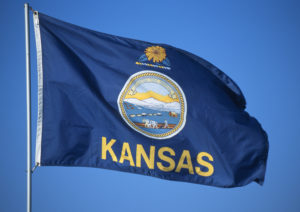 Kansas: Michael B. Becher, 41, of Raytown, Missouri was sentenced last week as part of a methamphetamine ring also was responsible for stealing the identities of current and former Johnson County employees, a federal court has ruled. Johnson County officials say their identities were not stolen as the result of a widely-reported case involving the Konnech election software last fall. Instead the employees appear to have been victims of a 2015 breach involving a misplaced or lost list of personal information in the county corrections department. Becher, was sentenced on two unrelated criminal cases before U.S. District Judge Greg Kays in the federal court for the Western District of Missouri. The bigger charge was for a $10 million conspiracy to distribute about 1,000 kilograms of meth. Becher will serve 20 years in federal prison without parole for that. In the second case, Becher pleaded guilty to a scheme to use Johnson County employees’ identities to commit credit card fraud.
Kansas: Michael B. Becher, 41, of Raytown, Missouri was sentenced last week as part of a methamphetamine ring also was responsible for stealing the identities of current and former Johnson County employees, a federal court has ruled. Johnson County officials say their identities were not stolen as the result of a widely-reported case involving the Konnech election software last fall. Instead the employees appear to have been victims of a 2015 breach involving a misplaced or lost list of personal information in the county corrections department. Becher, was sentenced on two unrelated criminal cases before U.S. District Judge Greg Kays in the federal court for the Western District of Missouri. The bigger charge was for a $10 million conspiracy to distribute about 1,000 kilograms of meth. Becher will serve 20 years in federal prison without parole for that. In the second case, Becher pleaded guilty to a scheme to use Johnson County employees’ identities to commit credit card fraud.
 New Jersey: Superior Court Judge David Bauman ordered a recount of some voting machines in four Monmouth County municipalities after errors with the installation of voting machine software from Election Systems and Software (ES&S) caused some votes to be double counted in the November 2022 general election. That could change the outcome of a school board race in Ocean Township, where Steve Clayton unseated incumbent Jeff Weinstein by 20 votes and was sworn in last month; unofficial tallies now put Weinstein ahead by just one vote. Election officials said that the recount will be held on February 8. Bauman relied on a New Jersey Supreme Court decision that election laws should be interpreted liberally as a reason for recounting and rechecking voting machines in Ocean Township, Belmar, Fair Haven, and Tinton Falls even though the deadline had passed. “The public interest in (the) finality of counting votes and election outcomes, in this instance, has not been shown to be strong enough to warrant strict enforcement of the provisions of (the statutes) … where, as here, the counting error appears to have been derived from a unique confluence of mechanical and human error, and no one on this record opposes the prayers for relief,” Bauman wrote in his ruling. He said concerns by election officials that they had “reason to believe that an error was made in counting the votes” were persuasive and was helped by some candidates in the election speaking up in court and asking for the recount. Bauman also said that the deputy attorney general, Dominic Giova, assuaged his concerns that the investigation into ES&S launched last month by Attorney General Matt Platkin might be compromised by the recount.
New Jersey: Superior Court Judge David Bauman ordered a recount of some voting machines in four Monmouth County municipalities after errors with the installation of voting machine software from Election Systems and Software (ES&S) caused some votes to be double counted in the November 2022 general election. That could change the outcome of a school board race in Ocean Township, where Steve Clayton unseated incumbent Jeff Weinstein by 20 votes and was sworn in last month; unofficial tallies now put Weinstein ahead by just one vote. Election officials said that the recount will be held on February 8. Bauman relied on a New Jersey Supreme Court decision that election laws should be interpreted liberally as a reason for recounting and rechecking voting machines in Ocean Township, Belmar, Fair Haven, and Tinton Falls even though the deadline had passed. “The public interest in (the) finality of counting votes and election outcomes, in this instance, has not been shown to be strong enough to warrant strict enforcement of the provisions of (the statutes) … where, as here, the counting error appears to have been derived from a unique confluence of mechanical and human error, and no one on this record opposes the prayers for relief,” Bauman wrote in his ruling. He said concerns by election officials that they had “reason to believe that an error was made in counting the votes” were persuasive and was helped by some candidates in the election speaking up in court and asking for the recount. Bauman also said that the deputy attorney general, Dominic Giova, assuaged his concerns that the investigation into ES&S launched last month by Attorney General Matt Platkin might be compromised by the recount.
 North Carolina: The new Republican majority on North Carolina’s Supreme Court agreed to rehear redistricting and voter identification cases less than two months after the court’s previous edition, led by Democrats, issued major opinions going against GOP legislators who had been sued. According to The Associated Press, the issues will return to the court for oral arguments in mid-March. The two Democratic justices lamented the orders and said they stood against more than 200 years of court history in which rehearings have been exceedingly rare. They said it appeared it was happening simply because the court’s partisan makeup had changed. Two new Republican justices took office in early January after winning November elections for seats held by Democrats. “The legal issues are the same; the evidence is the same; and the controlling law is the same,” Associate Justice Anita Earls wrote in the dissent of the order agreeing to rehear the redistricting case. “The only thing that has changed is the political composition of the Court.” The rehearings ultimately could lead to new opinions that reinstate the photo ID mandate. The court’s rehearing orders mentioned little about the topics to be reconsidered. Rather, the court said a case can be reheard “if the petitioner makes a satisfactory showing that the opinion may be erroneous.” The legislators’ petition or arguments met the requirements, the orders said.
North Carolina: The new Republican majority on North Carolina’s Supreme Court agreed to rehear redistricting and voter identification cases less than two months after the court’s previous edition, led by Democrats, issued major opinions going against GOP legislators who had been sued. According to The Associated Press, the issues will return to the court for oral arguments in mid-March. The two Democratic justices lamented the orders and said they stood against more than 200 years of court history in which rehearings have been exceedingly rare. They said it appeared it was happening simply because the court’s partisan makeup had changed. Two new Republican justices took office in early January after winning November elections for seats held by Democrats. “The legal issues are the same; the evidence is the same; and the controlling law is the same,” Associate Justice Anita Earls wrote in the dissent of the order agreeing to rehear the redistricting case. “The only thing that has changed is the political composition of the Court.” The rehearings ultimately could lead to new opinions that reinstate the photo ID mandate. The court’s rehearing orders mentioned little about the topics to be reconsidered. Rather, the court said a case can be reheard “if the petitioner makes a satisfactory showing that the opinion may be erroneous.” The legislators’ petition or arguments met the requirements, the orders said.
 Oklahoma: Two poll workers at the center of a Tulsa City Council election dispute in November have entered into a deferred prosecution agreement with the Tulsa County District Attorney’s Office. Under the terms of the agreement, David Barber, 72, and Henryetta Barber, 68, will not be charged with interference with the conduct of an election. In return, they must each pay a $50 fine, do 25 hours of community service, cease being poll workers and not violate any laws for six months. “If they complete that, no charges will be filed against them, and if they fail, we are back to square one,” said Erik Grayless, first assistant district attorney for Tulsa County. The Barbers were working at a shared polling place for Precincts 77 and 377 in City Council District 5 on Nov. 8 when incumbent Councilor Mykey Arthrell faced challenger Grant Miller in a runoff election. Early that morning, Miller received calls from voters who said they had not been handed a City Council ballot. Tulsa County Sheriff Vic Regalado said at a press conference on election day that poll workers were not handing out City Council ballots to Republicans but were providing them to Democrats and independents, and it handed the case over to the District Attorney’s Office for possible charges. City Council elections are nonpartisan.
Oklahoma: Two poll workers at the center of a Tulsa City Council election dispute in November have entered into a deferred prosecution agreement with the Tulsa County District Attorney’s Office. Under the terms of the agreement, David Barber, 72, and Henryetta Barber, 68, will not be charged with interference with the conduct of an election. In return, they must each pay a $50 fine, do 25 hours of community service, cease being poll workers and not violate any laws for six months. “If they complete that, no charges will be filed against them, and if they fail, we are back to square one,” said Erik Grayless, first assistant district attorney for Tulsa County. The Barbers were working at a shared polling place for Precincts 77 and 377 in City Council District 5 on Nov. 8 when incumbent Councilor Mykey Arthrell faced challenger Grant Miller in a runoff election. Early that morning, Miller received calls from voters who said they had not been handed a City Council ballot. Tulsa County Sheriff Vic Regalado said at a press conference on election day that poll workers were not handing out City Council ballots to Republicans but were providing them to Democrats and independents, and it handed the case over to the District Attorney’s Office for possible charges. City Council elections are nonpartisan.
 Pennsylvania: The Pennsylvania Supreme Court has issued a series of opinions in the protracted legal battle over whether mail ballots missing a date or with the wrong date should be thrown out. The ruling follows an order the court issued last fall instructing counties to set aside all undated and wrongly dated ballots for last November’s midterm. It did not issue opinions explaining the decision at the time or providing guidance to counties going forward. The question of how to handle dates on mail ballots — state law requires voters to handwrite a date on the outer envelope — had been one of the most hotly contested legal and political fights in recent elections. In a tense status quo before last fall’s order, some counties had accepted undated ballots or ballots with any date, such as voters’ birth dates, saying it was unfair to disqualify ballots from legal voters simply because they had made a mistake. Writing for the court Justice David Wecht said the dating requirement spelled out in state law is clear: For a mail ballot to count, it must be dated with the date the voter filled it out. As for how a county should determine that the date on the ballot is the correct one, Wecht, a Democrat, wrote that that question “falls beyond our purview.” Individual county boards of elections, he said, “retain authority to evaluate the ballots that they receive in future elections.” That means it’s likely that counties will adopt different policies on which ballots to count or reject going forward. All six Supreme Court justices agreed that undated ballots should be rejected under state law, but two — Justices Christine Donohue and Debra Todd, both Democrats — split from the others on the question of incorrectly dated ballots. In a separate opinion, they said the ballot-dating requirement isn’t as clear as Wecht’s majority opinion makes it out to be. “In my view,” Donohue wrote, “a mail-in or absentee ballot received on or before election or primary day should be counted if it is signed and bears any date affixed by the elector.”
Pennsylvania: The Pennsylvania Supreme Court has issued a series of opinions in the protracted legal battle over whether mail ballots missing a date or with the wrong date should be thrown out. The ruling follows an order the court issued last fall instructing counties to set aside all undated and wrongly dated ballots for last November’s midterm. It did not issue opinions explaining the decision at the time or providing guidance to counties going forward. The question of how to handle dates on mail ballots — state law requires voters to handwrite a date on the outer envelope — had been one of the most hotly contested legal and political fights in recent elections. In a tense status quo before last fall’s order, some counties had accepted undated ballots or ballots with any date, such as voters’ birth dates, saying it was unfair to disqualify ballots from legal voters simply because they had made a mistake. Writing for the court Justice David Wecht said the dating requirement spelled out in state law is clear: For a mail ballot to count, it must be dated with the date the voter filled it out. As for how a county should determine that the date on the ballot is the correct one, Wecht, a Democrat, wrote that that question “falls beyond our purview.” Individual county boards of elections, he said, “retain authority to evaluate the ballots that they receive in future elections.” That means it’s likely that counties will adopt different policies on which ballots to count or reject going forward. All six Supreme Court justices agreed that undated ballots should be rejected under state law, but two — Justices Christine Donohue and Debra Todd, both Democrats — split from the others on the question of incorrectly dated ballots. In a separate opinion, they said the ballot-dating requirement isn’t as clear as Wecht’s majority opinion makes it out to be. “In my view,” Donohue wrote, “a mail-in or absentee ballot received on or before election or primary day should be counted if it is signed and bears any date affixed by the elector.”
Brian Paul Vollman II, 25 of Lycoming County was charged for voting twice during the November 2022 election. Vollman voted on Nov. 8 at the Clinton Township polling location and then again at the Muncy Creek Township location. Poll discovered the error when Vollman’s father came to vote at the Clinton Township. Vollman had signed the polling book in the space for his father’s name, according to the affidavit written by county detective Joseph W. Hope. Vollman’s father called him and asked if he signed the book in his name. When Vollman admitted to signing his father’s name, Vollman Sr. yelled at him and told him he was not registered to vote in Clinton Township. When Forest Lehman, director of Lycoming County Voter Services, interviewed Vollman he told him he voted at the Muncy Creek Township location but denied voting in Clinton Township. A family member told Lehman that Vollman had voted in Clinton Township signing under his father’s name and then voted again at Muncy Township. Vollman was charged with a felony of repeat voting at elections. District Judge William C. Solomon set bail at $15,000 unsecured. A preliminary hearing at the Muncy magisterial office is set for Feb. 17.
Opinions This Week
National Opinion: Voter suppression | Democracy | Ranked choice voting
Arizona: Election administration | Ranked choice voting
California: Ranked choice voting | Ballot counting
Maine: Voter ID
Massachusetts: Same day registration
Nebraska: Sanctity of voting
Nevada: Election reform
New Mexico: Native American voting rights
New York: Ranked choice voting
Ohio: Voter ID law
Utah: Ranked choice voting, II
Washington: Mandatory voting
Wisconsin: Poll watchers | 2020 election review | Voting equipment
Wyoming: Election reform
Upcoming Events
NASS Winter Conference: Attendee registration for this event will open in December 2022 The cost to attend is $500 early/ $600 late (after January 24, 2023) for Secretaries of State, State Government Staff, NASS Corporate Affiliates and Federal Government Staff. The cost for Non-Profit Organizations to attend is $750 per person early/ $850 late (proof of valid non-profit status required). The cost for Corporate Non-Members to attend is $1300 per person early/ $1400 late. Registration for this event will close on Monday, February 6, 2023, or when registration capacity is fulfilled. On-site registration WILL NOT be available for this event. All event attendees are subject to the event anti-harassment policy and conference waiver of liability. There is no virtual option to attend. Press registration for this event will open on January 18, 2023 Further details and instructions will be posted on January 18. There is no cost for the press to attend. Virtual attendance will not be available. Where: Washington, DC. When: Feb. 15-18, 2023.
NASED Winter Conference: Save the date and check back for more details. When: Feb. 15-18. Where: Washington, DC.
EAC Local Leadership Council Meeting: The EAC’s Local Leadership Council (LLC) will host a virtual meeting on February 21, 2023, that will be live streamed on the EAC’s YouTube Channel. During the meeting, the EAC’s LLC members will examine the council’s organizational structure and consider the adoption of the initial committee Bylaws. The LLC Bylaws establish the guidelines for the conduct of the council members, meetings, and subcommittees. The Bylaws cover several topics, including the process for calling and conducting meetings, the establishment of committees, the structure of the Executive Committee, the makeup of Regional Committees, and the process of holding elections. As leaders and officials who work firsthand to administer elections at the local level, the LLC provides recommendations and direct feedback to the EAC on a range of topics such as voter registration, voting system user practices, ballot administration (programming, printing, and logistics), processing, accounting, canvassing, chain of custody, certifying results, and auditing. The EAC appoints two members from each state to the 100-member LLC after soliciting nominations from each state’s election official professional association. Members of this advisory board, which was established in June 2021, must be serving or have previously served in a leadership role in a state election official professional association when appointed. The LLC currently comprises 88 appointed members. When Feb. 21. Where: Online.
Election Center Special Workshop: Courses offered include: Course 7 (Enhancing Voter Participation); Course 8 (Implementing New Programs); and Renewal Course 13 (Legislatures, Decision-making, & the Public Policy Process). Workshops will include blocks on communications, design, access, security, logistics and planning, and vote by mail. There will also be a visit to the Los Angeles County Registrar-Recorder/County Clerk facilities. When: Feb. 22-26. Where: Pasadena California.
EAC Clearie Submission Deadline: Each year, the U.S. Election Assistance Commission (EAC) invites submissions for its national Clearinghouse Awards, or Clearies for short. Under the Help America Vote Act of 2002 (HAVA), the EAC is charged with serving as a clearinghouse for election administration information. By celebrating innovative efforts from state and local election offices, the Clearies helps the EAC to fulfill this important mission. Entries for the 2022 awards must be received by Tuesday, February 28, 2023. Jurisdictions of all sizes are encouraged to submit their work. Please use the EAC’s online submission form to submit your entry and any supporting material. Questions can be sent to the EAC at clearinghouse@eac.gov. The 2022 Clearies winners will be announced in spring of 2023. When: Feb. 28
Election Center Special Workshop: Courses offered will include: Course 9 (History III – 1965 to Present), Course 10 (Constitutional Law of Elections, renewal) and Course 15 (Training in Elections: Reaching All Levels). When: April 27-30. Where: Houston.
ERSA 2023 Conference: The 7th Annual Summer Conference on Election Science, Reform, and Administration (ESRA) will be held in person from Wednesday, May 31 to Friday, June 2, at the University of Georgia in Athens, Georgia. Details about this year’s conference program are forthcoming. When: May 31-June 2. Where: Atlanta
Job Postings This Week
electionlineWeekly publishes election administration job postings each week as a free service to our readers. To have your job listed in the newsletter, please send a copy of the job description, including a web link to mmoretti@electionline.org. Job postings must be received by 5pm on Wednesday in order to appear in the Thursday newsletter. Listings will run for three weeks or till the deadline listed in the posting.
Assistant County Clerk-Recorder, Nevada County, California— Under administrative oversight you can be assisting with planning, organizing, directing and leading the activities of the County Clerk-Recorder’s office! The Assistant Clerk-Recorder will provide highly sophisticated staff assistance to the Clerk-Recorder! This management classification position serves at the will of the County Clerk-Recorder, and acts on her behalf in her absence and provides full line and functional management responsibility for the department’s Recorder and Election divisions. This position is distinguished from the County Clerk-Recorder in that the latter is an elected position and has overall responsibility for all functions of the department. Salary range: $111,810 – $136,500. Application: For the complete job listing and to apply, click here.
Assistant Director, Butler County, Pennsylvania— To supervise and direct the operational processes relating to voter registration, voting and elections, ensuring that voters’ rights are protected and votes are recorded and counted accurately. Assists the Director in implementing the day to day functions of the Elections Department. The incumbent supervises the non-exempt staff and answers voter and candidate questions or selects proper course of action to resolve problems. Assists Director in evaluating new technologies for election process. Consults with others regarding clarification of the Pennsylvania Election Code. Refers complex issues requiring clarification of the Pennsylvania Election Code or the Pennsylvania Constitution to the Director of Elections. A Bachelor’s Degree in a related field and/or equivalent work experience is required. Significant experience in Computer Science course work or equivalent is required. Prior work experience involving the electoral process is desirable, as is supervisory experience. Must be knowledgeable of State and County voting laws, regulations, procedures, and requirements. Computer, telephone and customer service skills are necessary. Salary: $45,129.18-$63,180.85. Application: For the complete job listing and to apply, click here.
Assistant Manager-Poll Worker Department, Palm Beach County, Florida— The Palm Beach County Supervisor of Elections is looking for an experienced Assistant Poll Worker Department Manager. In this role, you will oversee the planning and the completion of various projects, administrative functions, operations, and specialized tasks in the Poll Worker Department. The work involves knowledge and application of departmental operations, planning, assigning responsibilities, monitoring election worker classes, maintaining records, evaluating performance, and the ability to review work for accuracy. This position requires initiative and sound independent judgement in the application of office policies, election laws, and procedures. Must be personable and maintain effective working relationships with colleagues, associates, and the general public. All work is performed under the guidance of the Supervisor of Elections. The ideal candidate will have an excellent work ethic, including consistent performance, reliability, and attendance. The desire and ability to work well in a fast-paced collaborative environment with a smile are essential to the position. Application: For the complete job listing and to apply, click here.
Board of Elections Training Specialist, Wake County, North Carolina— Are you looking to get involved in your community? Do you want to make a difference? Are you passionate about learning? If so, get ready to roll up your sleeves and become part of something bigger! The Wake County Board of Elections is currently seeking an experienced Instructional Designer/Training Specialist to join our dynamic and driven Training Team. The ideal candidate will be a strong communicator who thrives in a fast paced, ever changing work environment. They will have a clear understanding of the commonly accepted instructional design models, what it takes to be a behind the scenes designer, have a strong visual sense and excellent project management skills. What will you do as a Board of Elections Training Specialist? Develop training materials, including classroom presentations, manuals, workbooks, training videos and online training modules to facilitate comprehensive training for Early Voting and Election Day Officials Review, evaluate and modify existing and proposed programs and recommend changes Create schedules, design layouts for training facilities and adjusts room layouts as necessary between in-person classes. Train and manage instructors and assistants for in-person training classes. Serve as instructor for some online webinars and in-person classes. Collaborate with team members to gain knowledge of work processes, identify training needs and establish plans to address the needs through training solutions. Identify innovative training tools and methods to enhance the training program. Monitor and assess election law changes and incorporate the changes into polling place procedures. Develop and design election forms, precinct official website, newsletters, assessments and other communications. Develop high level design documents, storyboards, audio narration scripts, status reporting, QA and testing plans. Assists with Early Voting site setups and call center support. Assists with Election Day call center support and post-election processes. Portfolios will be required by all applicants who are selected to move forward in the recruitment process. Application: For the complete job listing and to apply, click here.
Chief Deputy Registrar, Lexington, Virginia— The City of Lexington is accepting applications for the non-exempt full-time position of Chief Deputy Registrar. This is an appointed, at-will position that serves a term not to exceed the term of the current Registrar. (Code of Va. §24.2-112) The Chief Deputy Registrar “shall have the same limitations and qualifications and fulfill the same requirements as the General Registrar…” (Ibid.) The Chief Deputy Registrar must be able to assume the duties and responsibilities of the General Registrar in the Registrar’s absence. The position requires knowledge of, or the ability to quickly obtain, knowledge of: elections, election law, security practices, government, finance, training, and related technologies. The successful applicant will be required to undergo a criminal background check, DMV motor vehicle record check, and drug screening. Salary: $22.86–$24.09/hr. Application: For the complete job listing and to apply, click here.
Chief Information Officer, Illinois State Board of Elections— Functions as Chief Information Officer (CIO) of the SBE Information Technology Systems. Responsibilities encompass full range of information services; application design and development, system administration, data administration, operations, production control, and data communications. In conjunction with the Board, Executive Director, and Executive staff, the CIO determines the role of information systems in achieving Board goals. Defines goals in terms of statutory obligations to be met, problems to be solved, and/or opportunities that can be realized through the application of computerized information systems. Prepares and submits budget based projections of hardware, software, staff and other resource needs to adequately provide for existing systems, as well as support of new project initiatives. Advises Executive Staff in matters relating to information technology. Develops presentations and reports for the Board and Administrative Staff. In conjunction with Executive Staff, evaluates system performance to determine appropriate enhancements. Salary: $7,885 – $13,237 Monthly. Application: For the complete job listing and to apply, click here.
Communications Manager, King County, Washington— This is an amazing opportunity to be engaged in the election process! King County’s Department of Elections is seeking an innovative and effective Communications Manager to lead the department’s communications team. The Department of Elections is searching for an energetic and resourceful professional who likes to get stuff done. The Communications Manager position offers an opportunity to craft a communications strategy and cultivate the talents of a diverse team to communicate proactively, regularly, and reliably with the voters of King County. The ideal candidate will thrive in an innovative, fast-paced environment, will possess strong strategic perspective and pollical savvy, and will not hesitate to roll up their sleeves, have fun, and get the job done. This position reports to the Chief of Staff for the Department of Elections. The person who fills this role will oversee all elements of the department’s communication efforts and serve as a key advisor to both the Director of Elections and Chief of Staff. The position will play a central role in key transformational efforts for the department such as implementing ranked choice voting and lead cross-departmental efforts such as developing a comprehensive campaign to combat misinformation about elections. The Communications Manager will also serve as a representative to the media and the public on behalf of the department, including live and recorded interviews, presentations, and other requests. Salary: $114,167.25 – $144,713.92. Deadline: Feb. 13. Application: For the complete job listing and to apply, click here.
Compliance Specialist 2, Oregon Secretary of State’s Office— In this role, you will help the public comply with Oregon campaign finance laws and rules. You will also help investigate possible violations of Oregon election laws and rules. This is accomplished in part by, but not limited to: Teaching filers how to submit filings on ORESTAR (Oregon Elections System for Tracking And Reporting); Explaining election laws and rules to the public and to filers; Reviewing filings for legal sufficiency; Conducting investigations into possible election law violations; Making recommendations about the outcome of investigations; Issuing civil penalties for non-compliance; and Answering the public’s questions about registering to vote and voting. Application: For the complete job listing and to apply, click here.
Departmental Training Coordinator, DeKalb County, Georgia— The purpose of this classification is to develop, coordinate, deliver, and evaluate departmental training programs and learning solutions. The following duties are normal for this position. The omission of specific statements of the duties does not exclude them from the classification if the work is similar, related, or a logical assignment for this classification. Other duties may be required and assigned. Develops training programs for departmental employees; creates new and/or modifies existing courses and course materials; researches industry changes; and prepares activities and course assignments. Conducts training and facilitates in-house training programs for employees based on current trends and best practices. Assists employees in meeting certification and recertification requirements for mandated licensure and submits documents for license renewals. Coordinates training logistics to include training room, schedules, attendance tracking, passwords, supplies and set up; and selects or develops teaching aids including training handbooks, tutorials or quick reference guides . Administers and grades course assignments and exams; and tracks and analyzes learning curriculum effectiveness through various evaluations techniques including evaluation of individual performances. Maintains and prepares training and compliance records and prepares related documentation and reports; enters course exam grades; prepares training certificates; and updates compliance databases. Assists with internal departmental communications by preparing newsletters, promotional materials for training programs, flyers for departmental events, or related communications. Communicates with department management, supervisors, other employees, subject matter experts, schools, community groups, volunteers, the public, and other individuals as needed to coordinate work activities, review status of work, exchange information, or resolve problems. Maintains current knowledge of departmental business functions and operations to develop training programs and solutions for improving employee knowledge and performance within business units; and research training industry standards and best practices and applies new technologies. Salary: $52,815 – $81,862. Deadline: Feb. 28. Application: For the complete job listing and to apply, click here.
Digital and Multimedia Specialist, Issue One— The Digital and Multimedia Specialist (DMS) will play an integral role in expanding Issue One’s reach by producing and promoting multimedia content (including in-house video), managing and growing Issue One’s social media footprint, including Twitter, Facebook, LinkedIn, TikTok, and Instagram, running Issue One’s fundraising and action email list. The DMS will be proficient at video production and help Issue One reach new and larger audiences through video messaging, social media, and digital storytelling. The individual will also support key functions of the communications team, working closely with the communications director, senior communications manager, and communications specialist. The ideal candidate will possess a strong understanding of digital and multimedia strategies and tools needed to reach wider audiences and grow the organization’s brand in a competitive digital climate. Salary: $58K-$70K. Application: For the complete job listing and to apply, click here.
Director of Registration and Elections, Fulton County, Georgia— The County is seeking a Director of Registration and Elections (DRE). This position serves as the chief executive responsible for developing goals, objectives, policies, and procedures relating to voter registration and elections in Fulton County. The DRE also prepares, presents, and manages the department’s approved annual budget. The DRE leads programs and services that ensure safe, free, and accessible voter registration and elections in the County. The DRE ensures accurate collection and maintenance of voter registration data and administers the county elections and associated services, which includes but is not limited to absentee balloting, voter registration, voter education and outreach. The Director collects information and validates candidates for elective office, ensures the availability of training for poll workers, and directs efforts to educate voters on elections in the county. The DRE performs other duties, including preservation, storage, preparation, testing and maintenance of departmental election equipment. Furthermore, the director oversees election district boundaries, and administers the selection of polling places in the county. Salary: $175K-$195K. Application: For the complete job listing and to apply, click here.
Director of Elections, Cumberland County, North Carolina— The Elections Director works under the administrative direction of the County Board of Elections and Executive Director of the State Board of Election. The Elections Director performs professional, managerial, and administrative work for the Board of Elections and carries out all duties or responsibilities as assigned by Chapter 163 of the General Statutes of the State of North Carolina and as delegated by members of the County Board in accordance with the laws of the State of North Carolina, GS 163-35 (d) and 163-33. Reports to the Chairman of the Cumberland County Board of Elections. Salary: $78,784.40 – $132,425.23. Application: For the complete job listing and to apply, click here.
Division Director, Illinois State Board of Elections— Subject to Executive Director approval; oversees the administration of human resource programs including, but not limited to, compensation, payroll, benefits, and leave; disciplinary matters; disputes and investigations; performance and talent management; productivity, recognition, and morale; occupational health and safety; and training and development. Serves as the Board’s subject matter expert relating to personnel and human resource matters. Identifies staffing and recruiting needs; develops and executes best practices for hiring and talent management. Conducts research and analysis of Board trends including review of reports and metrics from human resource information systems. Recommends, implements, and ensures compliance with agency policies and procedures including, but not limited to, hiring, disciplinary actions, employee grievances, compensation plan, and employee performance evaluations. Creates and oversees human resource practices, programs, and objectives that provide for an employee-oriented culture that emphasizes collaboration, innovation, creativity, and knowledge transfer within a diverse team. Oversees the day-to-day administrative aspects of the Board’s personnel programs; accuracy of bi-monthly payrolls; benefits; quarterly and annual EEO/AA reporting; and, employee transaction documentation. Facilitates professional development, training, and certification activities for staff; development and maintenance of agency-wide training programs for on-boarding, staff development, and knowledge transfer. Responsible for the administration and oversight over all disciplinary matters; including: investigation of complaints; conducting witness interviews; documentation gathering; drafting and submittal of investigation findings to Executive Staff; advising Division Directors and Executive Staff on disciplinary matters; and, drafting of formal disciplinary reprimands in accordance with policy. Has administrative oversight of the Chief Fiscal Officer regarding budgetary and fiscal matters under the purview of the Division of Administrative Services. Supervises and evaluates subordinate staff; facilitates knowledge transfers and cross trainings; performs other duties as required or assigned which are reasonably within the scope of the duties enumerated above. Salary: $6,023.00 – $12,374.00 Monthly. Application: For the complete job listing and to apply, click here.
Early Voting Coordinator, Wake County, North Carolina— re you looking to be more involved in your community? Are you ready to be a part of democracy in the making? If so, get ready to roll up your sleeves and become a part of history! Wake County Board of Elections is currently seeking an Early Voting Coordinator to join our dynamic and talented Early Voting Team. The Early Voting Coordinator plays a critical role in the management and logistical planning of Early Voting. This includes communicating, scheduling election service vendors and managing voting site support operations to include the physically demanding work of setting up Early Voting sites. What will you do as an Early Voting Coordinator? Plan and organize all Early Voting operations; Assist with development of Early Voting expansion budget items and analyze budget impacts of new election laws and state directives and incorporate the changes into Early Voting site procedures; Work with Town Clerks, Municipal Administrators, Facility Directors, Special Event Coordinators and Superintendents to secure use of facilities for Early Voting; Manage Early Voting facilities, including scheduling, communication, support, logistics, database management and site setups; Develop Early Voting ballot order and determine the distribution of ballots each Early Voting facility will receive; Update and maintain the Early Voting blog and Early Voting page of the Wake County Board of Elections website; Manage the Early Voting support Help Line; Post-election reconciliation duties to include provisional management, presentations to the Board and assisting with record retention. Salary: Hiring Range: $20.81 – $28.10. Application: For the complete job listing and to apply, click here.
Election Certification & Training Program Manager, Washington Secretary of State’s Office— The Elections Certification & Training Program Manager reports to the Deputy Director of Elections and is responsible for managing the Certification and Training team. Certification and Training is a mission critical program established and required by RCW 29A.04.530, 29A.04.560, 29A.04.590. The Certification and Training Manager develops and manages program objectives and priorities, in collaboration with external stakeholders including independently elected auditors and election officials. Additionally, the Program Manager makes collaborative strategic judgments and decisions balancing competing program demands or priorities for resources; develops, modifies, and implements division policy; formulates long-range strategic plans and projects . The Certification and Training Manager also integrates division and office policies and reviews the program for compliance with policies and strategic objectives. The position is responsible for four mission critical functions: Professional certification and training of local and state election administrators and county canvassing board members. Review of county election operations and procedures. Testing of all vote tabulation equipment used in each county during state primary and general elections. The election clearinghouse and publication program. The Program Manager also manages the process for adopting state rules and is the Election Division’s liaison with the USPS. Salary: $83,000 – $93,000. Application: For the complete job application and to apply, click here.
Election Review Specialist, Washington Secretary of State’s Office— This Program Specialist 4 reports to the Certification and Training Program Manager and is responsible for overseeing the County Review Program which reviews the policies and procedures of Washington County Election Departments roughly every 5 years for compliance with state and federal election law. This collaborative process is intended to support local election officials, share best practices and is one of the reasons Washington State Election Administration is ranked highest in the nation. Salary: $57,324 – $77,028. Application: For the complete job listing and to apply, click here.
Elections Specialist-Ballot Processing, Pierce County, Washington— This is a great opportunity to play a critical role in this nation’s elections and democracy. Whether it is Election Day or another day of the year, we are working to continuously improve the voter experience and the conduct of elections. As a dedicated civil servant with experience in elections and supervising large teams, we are looking for an Elections Specialist for ballot processing. You will have the opportunity to be in the center of the action in Washington’s second-largest county. You will work with other specialists and management to develop a ballot processing schedule, and then schedule staff. You will also help with voter registration tasks when needed. We are looking for someone is comfortable and excels at leading and directing a large team of Seasonal elections workers ensuring accuracy in ballot processing and time-sensitive tasks. Someone who is customer service focused yet is deadline driven. Someone who values teamwork, is adaptable, learns new systems quickly, and who can communicate across all levels of the organization, with our customers and party observers. Multi-taskers with excellent written communication will be successful in this role. As an Elections Specialist, you will have the ability to immediately contribute to the team’s success. You will be guided through the process with coaching-focused managerial support, a team that wants you to be successful in your role, and an organizational culture that encourages continuous learning and professional development. Salary: $33.62 – $42.52 Hourly. Application: For the complete job listing and to apply, click here.
Executive Director, Missouri Association of County Clerks and Election Officials— The Missouri Association of County Clerks and Election Authorities (MACCEA) is a professional association of county clerks and election authorities from Missouri’s 116 counties and election authority jurisdictions. MACCEA’s Executive Board is comprised of elected county clerks and appointed election directors whose full-time jobs are to manage county offices, conduct high profile elections, and work in the challenging environment of county government administration. The Board is a volunteer position and officers are elected by the association membership with additional members appointed by the Board President. The Executive Director position, established in 2022, will help the Board better support our membership in their roles as county clerks and election authorities, as well as support the association’s vision, mission, and goals. MACCEA seeks a contract Executive Director with diverse non-profit management, governance, conference planning, and communications experience. The Executive Director reports to the 12-member MACCEA Executive Board. Duties and association management are delegated to the Executive Director by the MACCEA Bylaws and under the direction of the Executive Board. Salary Range: $55,000 – $65,000. Application: For the complete job listing and to apply, click here.
Executive Director, Ranked Choice Voting Resource Center— The primary responsibilities of this position are to set and reinforce the mission and vision of the organization, define its strategic direction and implement strategic plans for the organization’s development, make executive decisions that drive organizational growth, and build and manage relationships including stakeholders and potential donors. The Executive Director works with the Board to set goals for the organization, governs over organizational activities and relationships, guides the organization’s culture, and directs communication to support the mission of the organization. The ideal candidate will define the organization’s priorities and direction, oversee staff recruitment and retention, and work systematically to meet organizational goals. He or she should be a self-starter with the ability to work independently and with a team. This is a full-time remote position with in-person meetings and travel as needed. Application: For the complete job listing and to apply, click here.
Information Technology Security Analyst, Illinois State Board of Elections— The IT Security Analyst reports directly to the Manager of Cyber Operations and Infrastructure. Supports the administration, implementation, review, and improvement of endpoint, network, hardware, application, and data security practices. Implements, supports and monitors the agency’s information security applications, including email security, web security, endpoint security software, firewalls, intrusion prevention applications, data loss prevention, etc. Monitors system dashboards and logs for threat indicators. Analyzes data and performs necessary incident response procedures. Conducts network, system and application vulnerability assessments. Analyzes agency threat surface and makes recommendations to management to harden agency systems. Evaluates agency processes and implements and/or makes recommendations to enhance security. Reviews information received concerning threat events from end users, supervisory personnel, other federal, state, county and local agencies and governmental entities involved in the exchange of data with the State Board of Elections (SBE), external entities such as the Multi-State Information Sharing and Analysis Center (MS-ISAC), Elections Infrastructure Information Sharing and Analysis Center (EI-ISAC), trusted cybersecurity vendors, law enforcement agencies, and public information sources. Consults with SBE staff on security issues. Provides a high level of customer service to agency staff, state, county, and local election officials. Ensures service desk queues and incidents are handled in an appropriate and timely manner. Salary: $6,264 – $8,917 Monthly. Application: For the complete job listing and to apply, click here.
IT Specialist, Leon County, Florida— This full-time employee will provide support for a wide variety of technology needs, primarily specializing in computer hardware. Duties include deploying computer images, providing support for desktop computers, and assisting with security and protection of elections technology and infrastructure. The role is ideal for a dynamic, self-motivated IT professional who is focused on providing outstanding internal customer service and innovations across project teams. Success in this position requires experience with Windows desktops and applications, and installing and maintaining peripheral hardware such as printers, scanners, and bar code readers. Experience in multimedia and video production and editing is desired, but not required. Must be able to deliver work on-time under pressure and maintain flexible hours including on-call shifts and overtime during elections. Occasional out-of-town travel may be required for training. Work is sometimes physically demanding and requires reliable personal transportation, an insurable driving record, and a security clearance. Application: For the complete job listing and to apply, click here.
Oregon Votes Technical Trainer (Operations & Policy Analyst 3), Oregon Secretary of State’s Office— In this position you will lead technical training and support work for the Oregon Votes system, new voter registration system for Oregon that is currently in development. This work will involve the creation and maintenance of training materials, performing training for county election administrators, and collecting input from users to inform future development. This role will require significant independent self-led work and will provide the opportunity to build and maintain a training program to ensure Oregon election administrators and voters have access to a modern and secure voter registration system. Deadline: Feb. 14. Application: For the complete job listing and to apply, click here.
Program Associate (remote within the US), Center for Tech and Civic Life— When you think about elections, you might think about popular candidates, “I voted” stickers, and all sorts of paperwork and deadlines. But behind the scenes are thousands of election officials in state and local governments who are working hard to make sure ballots are counted and voices are heard. At a time when election officials are facing unprecedented challenges and scrutiny, they need support in order to administer secure and inclusive elections and build trust among the public. As Program Associate at CTCL, you will help to develop a program to assess, recognize, and celebrate outstanding performance by election departments nationwide. As part of your work, you’ll collaborate with internal and external partners, including election officials and subject matter experts. You’ll report to a Program Manager in the Government Services department. Deadline: Feb. 13. Salary: $53,500. Application: For the complete job listing and to apply, click here.
Senior Specialist-Voter Services, Johnson County, Kansas— The Senior Election Specialist – Voter Services will take a lead role on the voter services team within the Election Office. This position will oversee the office’s use of the statewide voter registration system and support other employees in their work within this vital system. This will require attention to detail and the ability to define a series of tasks to complete work within the system in an efficient and accurate manner for temporary employees. This position will also research and perform all geography changes within the statewide voter registration system to accommodate annexations made by cities as well as district boundary changes made by state and local governing bodies. The Senior Election Specialist – Voter Services will also participate in the programming of elections to include laying out paper ballots and designing the screens and audio for use on the ballot marking devices. This position will also receive and file all candidate paperwork including declarations of candidacy and required campaign finance disclosures. This position also actively mentors, coaches and collaborates with employees to enhance the county mission and vision keeping in mind the common goal of leaving our community better than we found it. Application: For the complete job listing and to apply, click here.
System Administrator, Sarasota County, Florida— The Systems Administrator is an Information Technology professional responsible for the coordination, implementation, planning, investigating and serving as the liaison for all facets of data processing, to include any election related tasks. Salary: $40,996 – $87,630. Application: For the complete job listing and to apply, click here.
Vote by Mail Manager, Palm Beach County, Florida— The Vote-by-Mail Manager is responsible for all aspects of vote-by-mail administration and operations, including but not limited to the Budgets, Staffing, Training Procedure Manuals, Database Management, Quality Control, Canvassing, Supervised Voting, SBIS administration, Inventory, Maintenance, and Testing. Responsibilities include: Departments operational calendar with timeline of election cycle tasks; Forecasting and updating departments annual operating budget; Staffing and training of vote-by-mail operational staff; Staff training and process manuals; Quality control of vote-by-mail database; and Update and maintain inventory, equipment, and software. Application: For the complete job listing and to apply, click here.
Vote by Mail Specialist, Leon County, Florida— This full-time employee co-leads the Vote-by-Mail effort during election time, and provides critical administrative support to the Voter Services team year-round. Duties include training small groups of seasonal election staff, operating commercial mail equipment, recommending policy and process improvements for the Vote-by-Mail project area, and assuring compliance with all known legal requirements. This role is ideal for a dynamic, self-starter with a meticulous eye for detail, a knack for solving intricate puzzles, and a passion for project management. Success in this position requires proficient computer capabilities to handle large workloads on time-constricted schedules, excellent leadership skills, and the ability to seek out information and manage complex projects. Experience working with Florida Statutes in a professional environment is desired, but not required. Work is performed under the direction of the Voter Services Director, generally in an office environment. Must be able to work under pressure with composure, excel in a team environment, maintain flexible hours, be able to lift up to thirty pounds, and possess an insurable driver’s license. Some overtime and out-of-town travel may be required. Application: For the complete job listing and to apply, click here.
Voting Rights Expert, The Carter Center— The Carter Center is seeking a highly qualified voting rights analyst to work on the Center’s US election advisory team under the guidance of the Democracy Program staff. The voting rights expert will assess and analyze key issues affecting women, the disabled, and disenfranchised groups in the United States. The voting rights expert will contribute to public and private statements concerning the electoral process and provide an impartial assessment of elections as well as detailed recommendations for ways to improve the program’s inclusiveness, credibility, and transparency as it relates to voting access of historically disenfranchised peoples. A minimum of seven (7) years of experience in democracy and/or elections is required, in addition to a degree in political science or another relevant field. Application: For the complete job listing and to apply, click here.
Warehouse Supervisor, DeKalb County, Georgia— The following duties are normal for this position. The omission of specific statements of the duties does not exclude them from the classification if the work is similar, related, or a logical assignment for this classification. Other duties may be required and assigned. Supervises, directs, and evaluates assigned staff; develops and oversees employee work schedules to ensure adequate coverage and control; compiles and reviews timesheets; approves/processes employee concerns and problems and counsels or disciplines as appropriate; assists with or completes employee performance appraisals; directs work; acts as a liaison between employees and management; and trains staff in operations, policies, and procedures. Prioritizes and schedules work activities to meet objectives; ensures that subordinates have the proper resources needed to complete the assigned work; monitors status of work in progress and inspects completed work; consults with assigned staff to assist with complex/problem situations and provide technical expertise; provides progress and activity reports to management; and assists with the revision of procedure manuals as appropriate. Supervises warehouse operations and facilities; safeguards warehouse operations and contents; establishes and monitors security procedures and protocols; implements production, productivity, quality, and customer service standards; plans warehouse layout, product flow, and product handling systems; identifies trends; evaluates and recommends new equipment; and analyzes process workflow, space requirements, and equipment layout; and implements improvements. Researches, purchases, and inventories commodities, equipment, and other supplies; conducts physical counts of inventory items; records issuing and usage; verifies and refines or updates required bid specifications; and maintains related records and documentation. Oversees the administrative process through process assessments, measurements, and process mapping for better efficiency; formulates process documentation; organizes periodic and random cycle counts; formulates and monitors various administrative reports; populates database with stocking levels and other information for proper report generation and order tracking; performs regular maintenance on various inventory report statuses to keep system clean and updated; and reviews various system-generates reports for overall key performance drivers. Manages the issuing, maintenance, servicing, and receiving of various types of equipment and supplies from the supply room. Organizes and directs physical inventory counts; manages vending equipment acquisition, implementation, and orders replenishment items; and manages office product inventory for assigned department and emergency response procedures, non-stocked inventory, and expendable inventory items. Receives and reviews various documentation, including attendance records, overdue equipment reports, operational budgets, equipment status reports, stock transfer reports and about-to-reorder reports, and physical inventory reports; reviews, completes, processes, forwards or retains as appropriate; prepares or completes various forms, reports, correspondence, and other documentation, including inventory measures reports, open purchase order reports, performance evaluations, and performance measurements; compiles data for further processing or for use in preparation of department reports; and maintains computerized and/or hardcopy records. Facilitate all logistics related to the elections operation of voting sites, including moving equipment, furnishings, supplies, and materials; conduct pre-election testing and post-election equipment audits. Serve as site manager for VRE warehouse space; oversee the department’s inventory of voting site supplies, tables, chairs, signs, voting machines, and equipment. Attend and participate in mandatory ongoing training, including certifications and annual training. Salary Range: $42,937 – $66,552. Application: For the complete job listing and to apply, click here.
Marketplace
electionline provides no guarantees as to the quality of the items being sold and the accuracy of the information provided about the sale items in the Marketplace. Ads are provided directly by sellers and are not verified by electionline. If you have an ad for Marketplace, please email it to: mmoretti@electionline.org